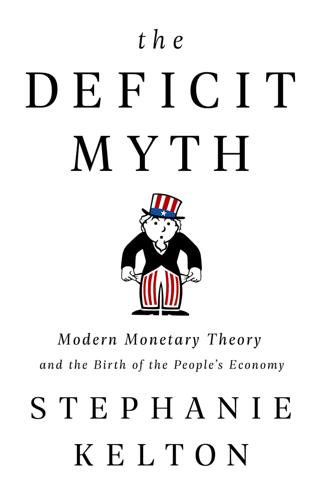
The Deficit Myth: Modern Monetary Theory and the Birth of the People's Economy
by
Stephanie Kelton
Published 8 Jun 2020
Good times are followed by bad times, which eventually set the stage for the next round of good times. A major benefit of the job guarantee is that it helps to insulate the economy as it passes through the inevitable boom-bust cycle. Instead of throwing millions of people out of work when the economy softens, the job guarantee allows people to transition from one form of paid employment into another. You might lose a job sorting boxes for a private retailer, but you could immediately secure employment performing a useful job in public service. Because the job guarantee allows workers to transition into alternative employment rather than joining the ranks of the unemployed, the program helps to cushion the overall economy by supporting wages and preserving (or enhancing) skills until the economy recovers and workers begin to transition back into private sector jobs.
…
When the recovery eventually arrives, companies can raise prices to reestablish customary profit margins. The more the economy swings around, the more prices may move in response. By stabilizing consumer income, the job guarantee helps to avoid wider adjustments in consumer spending that may result in more price variation. The job guarantee also helps to stabilize inflation by anchoring a key price in the economy—the price paid to workers in the job guarantee program. By establishing a wage floor, the government sets the minimum compensation, say $15 per hour. This becomes the rate of remuneration against which all other employment can be priced.
…
To establish a universal minimum, there must be a standing offer to bid for labor at some positive price. The job guarantee establishes that minimum bid, making the job guarantee wage the de facto minimum wage throughout the economy. Once established, any other form of employment would be expected to offer a premium over the base wage.28 We already do this with interest rates, where the Federal Reserve sets the overnight rate, which becomes the base rate against which mortgages, credit cards, auto loans, and so on are priced. When the Fed raises the short-term rate, other rates usually move higher.29 By anchoring the price of labor, the job guarantee imparts greater stability across a spectrum of wages and prices in the economy.
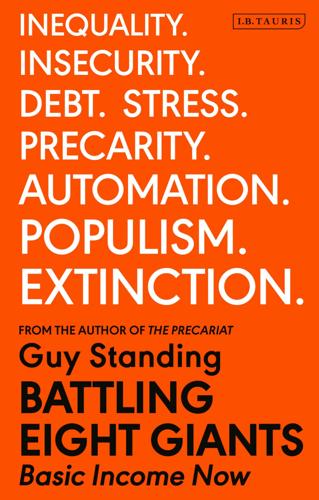
Battling Eight Giants: Basic Income Now
by
Guy Standing
Published 19 Mar 2020
Martin, ‘Baby Steps Toward Guaranteed Incomes and Racial Justice’, New York Times, 8 May 2019. Appendix B 1 This discussion draws on G. Standing, ‘Why a Job Guarantee Is a Bad Joke for the Precariat and for Freedom’, Open Democracy, 7 September 2018. 2 ‘The Guardian View on a Job Guarantee: A Policy Whose Time Has Come’, The Guardian, 3 May 2018; P. Gregg and R. Layard, ‘A Job Guarantee’, London School of Economics, 2009. 3 For a critique, see G. Standing, ‘Why a Basic Income Is Necessary for a Right to Work’, Basic Income Studies 7 (2), 2013, pp. 19–40. 4 M. Sandbu, ‘Free Lunch Economics: Jobs Guarantee Is a Distant SecondBest Policy’, Financial Times, 2 July 2018. 5 K. Aronoff, ‘Rep.
…
Loomis, ‘The Case for a Federal Jobs Guarantee’, New York Times, 25 April 2018. 128 Notes 8 L. Summers, ‘A Jobs Guarantee – Progressives’ Latest Big Idea’, Financial Times, 2 July 2018. 9 G. Standing, A Precariat Charter: From Denizens to Citizens, London and New York: Bloomsbury, 2014. 10 J. Dorfman, ‘Job Guarantee: A Liberal Idea That Conservatives May Embrace’, Forbes Magazine, 1 May 2018. 11 G. Standing, Work after Globalization: Building Occupational Citizenship, Cheltenham: Edward Elgar, 2009. 12 S. McElwee, C. McAuliffe and J. Green, ‘Why Democrats Should Embrace a Federal Jobs Guarantee’, The Nation, 20 March 2018.
…
104 Appendix B At its unlikely best, a job guarantee would be paternalistic. It presumes the government knows what is best for individuals, who would be offered a necessarily limited range of jobs at its disposal. Suppose someone was pressed to take a guaranteed job on a construction site (‘infrastructure’, a favoured area for guaranteed jobs) and that person proved incompetent and was injured. Would the job guarantee agency be held responsible and pay compensation? It should, since it put the person in that position. How would that be factored into the costing of a job guarantee scheme? Similarly, if a person put into a ‘social care’ job was negligent and caused harm or distress to the care recipient, would the latter be able to sue the job guarantee agency for compensation?
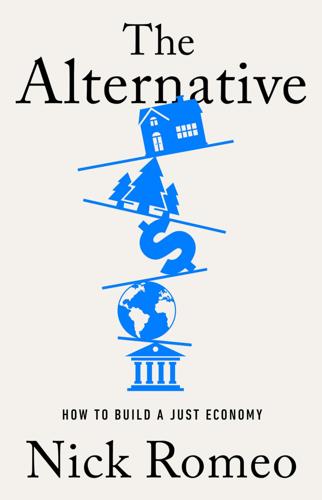
The Alternative: How to Build a Just Economy
by
Nick Romeo
Published 15 Jan 2024
Like an increase to the minimum wage, a nationwide Job Guarantee would pressure low-quality employers to improve wages and conditions. More fundamentally, even if a higher minimum wage or a job guarantee did cause unemployment to rise, training and access to a job guarantee could help anyone seeking work. Private-sector employers could also have the option of receiving subsidies, as in the Austrian program. The economist Pavlina Tcherneva, an insightful supporter of job guarantees, notes that the effective minimum wage for workers who can’t find employment is zero. A job guarantee would extend the real minimum wage to anyone who wanted to work.
…
If signatory countries took this commitment seriously, they would implement some version of a job guarantee. The popularity of guaranteed employment is not limited to mid-twentieth-century diplomats and idealistic treaties. In a 2019 poll, 78 percent of American voters supported a federal job guarantee. Even a majority of strongly conservative voters were in favor.34 One factor that muddies debate over job guarantees is the misleading nature of the official unemployment rate. If the rate is low, it’s tempting to argue a job guarantee is unnecessary—there are enough jobs for anyone who wants one. But using the official unemployment rate to understand the labor market is a bit like peering through the arrow slit of a medieval fortification: you get a narrow view through a structure built for defensive purposes.
…
Defense spending in the United States, by contrast, is estimated at 3.3 percent of GDP.21 Government spending on unemployment and other labor market programs before the pandemic averaged less than 1 percent of GDP for nearly a decade in America, far below most other developed nations in the world.22 There would also be a range of positive social and economic benefits, including better physical and mental health for tens of millions, which could easily make the budget impact of a federal job guarantee neutral.23 If a job guarantee set a wage floor of $20 per hour, both the quality and the pay of private-sector jobs would improve. Rather than fighting deep-pocketed companies over many small improvements to labor conditions, pay, and benefits, a single decisive intervention to create a federal job guarantee—or public markets for irregular workers, as we’ll see in the next chapter—could force gig companies, Amazon, fast-food chains, and other low-quality employers to instantly improve pay and conditions.
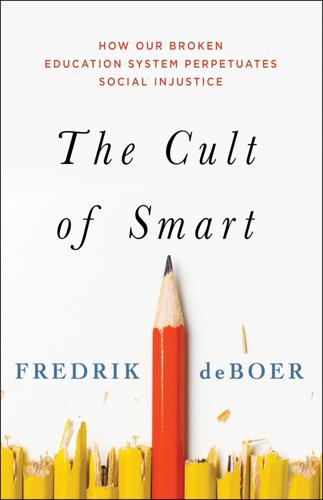
The Cult of Smart: How Our Broken Education System Perpetuates Social Injustice
by
Fredrik Deboer
Published 3 Aug 2020
These jobs will be socially valuable but of dubious profit-generating value; typically tasks like environmental cleanup, childcare, and public art projects are named as potential jobs guarantee office jobs. One advantage of the jobs guarantee is that it is inherently countercyclical: in times of recession, when there are too few jobs for the number of workers, the jobs guarantee would ensure people can avoid poverty; in boom times, employers would compete for workers and the jobs on offer would be more attractive than a jobs guarantee job. Jobs guarantee advocates further argue that such a guarantee has the advantage of being both not means tested (as anyone who wants to can get one of the jobs) but also practically limited to those with the most need (as it’s only those who lack a quality job who would sign up).
…
Jobs guarantee advocates further argue that such a guarantee has the advantage of being both not means tested (as anyone who wants to can get one of the jobs) but also practically limited to those with the most need (as it’s only those who lack a quality job who would sign up). As you might expect, universal basic income supporters have criticisms of jobs guarantee programs, just as jobs guarantee people criticize the UBI. Matt Bruenig, founder of the left-wing think tank People’s Policy Project, has been particularly consistent in pointing out problems with a jobs guarantee. As he observes, it’s hard to see how there will always naturally be work that needs doing that simultaneously does not satisfy the profit motive. Jobs guarantee jobs must satisfy some intrinsic need, but that need must not be sufficient for someone to set up a for-profit operation to do it; this is a thin needle to thread.
…
Matt Bruenig writes, “as long as the JG wage is fixed, all the private employers have to do if their workers get too demanding is undercut them by offering a JG worker a wage above the set JG wage, knowing that the JG office will not counteroffer to try to hold on to their workers.”18 As for myself, my basic fear with a jobs guarantee is that it may likely become a shitty jobs guarantee. That is, the work that is secured through a jobs guarantee might be decently remunerative but could be filled with jobs guarantee participants precisely because no one else wants the work, whether because it’s unpleasant, it’s dangerous, or there’s no room for advancement. At worst, jobs guarantee jobs might simply become make-work programs, with whatever government agency that runs the program creating jobs simply because there’s nothing better on offer. And if that’s the case … why not just give people the money? It’s worth pulling back and noting the essential confusion here.
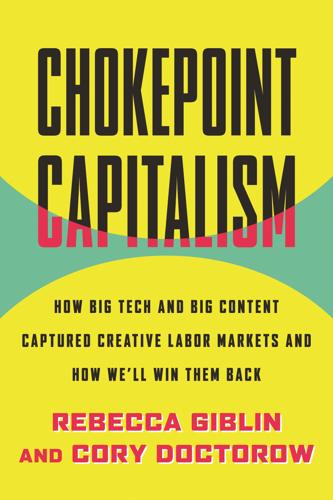
Chokepoint Capitalism
by
Rebecca Giblin
and
Cory Doctorow
Published 26 Sep 2022
Julie Cohen, Between Truth and Power: The Legal Constructions of Informational Capitalism (New York: Oxford University Press, 2019), 7. 26. Bradley Thomas, “Why Bernie Sanders’s Universal Job Guarantee Is Fool’s Gold,” Foundation for Economic Education, Oct. 25, 2019, https://fee.org/articles/why-universal-job-guarantees-are-fool-s-gold. 27. Naomi Klein, On Fire: The Burning Case for a Green New Deal (New York: Penguin, 2019). 28. Mark Paul, William Darity Jr., and Darrick Hamilton, “The Federal Job Guarantee—A Policy to Achieve Permanent Full Employment,” Center on Budget and Policy Priorities, Mar. 9, 2018, https://www.cbpp.org/research/full-employment/the-federal-job-guarantee-a-policy-to-achieve-permanent-full-employment. 29.
…
If we decide to prioritize full employment in dignified and socially useful work, there are ways to achieve it without blowing the economy up. Right-wing economists criticize job guarantees by arguing that offering everyone a good job would create “pressure to introduce a higher wage or certain benefits that the private sector doesn’t offer.”32 They’re so close to getting it. A jobs guarantee would indeed increase the share of GDP that goes to labor, because every private sector employer would know its workers could shift into public work if the conditions were better there. That’s why a job guarantee is such a powerful response to chokepoint capitalists. The only reason megacorporations can steal wages and divert such a big share of profits to investors is because their workers and suppliers have no other choice.
…
If we leave their funding entirely to the market, eventually they’ll no longer be possible, and important parts of human culture will be lost. A job guarantee for creative workers could help prevent that. There’s precedent for this: the US successfully responded to the Great Depression in the 1930s by creating millions of public jobs as part of Roosevelt’s New Deal. As Naomi Klein explains, this included meaningful work for “tens of thousands of painters, musicians, photographers, playwrights, filmmakers, actors, authors, and a huge array of craftspeople,” generating “an explosion of creativity and a staggering body of work,” including live music performances that reached 150 million people.27 A job guarantee would mean that the day you lose your employment you could pick up a new, dignified job—including whatever training that requires—until someone in the private sector decides to offer you a better one.
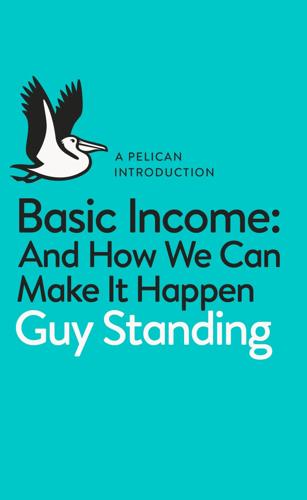
A Pelican Introduction: Basic Income
by
Guy Standing
Published 3 May 2017
It was one of many studies that have found a preference for cash over what bureaucrats think people want and need. Guaranteed Jobs It is sometimes claimed that a ‘job guarantee’ would be preferable to a basic income because jobs are believed to have some sort of intrinsic value beyond the income they bring in (a sense of identity and contribution to the community, structured time, interaction with fellow workers, and so on) that makes people happier. Proponents of a ‘job guarantee’ include Lord (Richard) Layard, who was Tony Blair’s ‘happiness czar’, in the UK22 and Harvey and Quigley in the US, following the earlier advocacy by Minsky.23 The objections to this policy include some that apply with even more force to the next policy option, namely workfare.
…
Proponents of a ‘job guarantee’ include Lord (Richard) Layard, who was Tony Blair’s ‘happiness czar’, in the UK22 and Harvey and Quigley in the US, following the earlier advocacy by Minsky.23 The objections to this policy include some that apply with even more force to the next policy option, namely workfare. A job guarantee would be a deception. What sort of jobs would be guaranteed? At what rate of pay would they be provided? What would be the consequence for declining the specific job being ‘guaranteed’? Since it is completely unrealistic to guarantee everyone a job that suits them, makes use of their skills and pays well, in practice the job would be low-level, low-paid, short-term and ‘make-work’, or at best low-productivity, labour. Cleaning the streets, filling shelves in supermarkets and similar menial activities are an unlikely road to happiness. Those arguing for a job guarantee would certainly not want those jobs for themselves or their children.
…
Bhalla, ‘Dismantling the welfare state’. 21. Hidrobo et al., ‘Cash, food, or vouchers?’. 22. P. Gregg and R. Layard (2009), A Job Guarantee. London: Centre for Economic Performance Working Paper, London School of Economics. http://cep.lse.ac.uk/textonly/_new/staff/layard/pdf/001JGProposal-16-03-09.pdf. 23. P. Harvey (2005), ‘The right to work and basic income guarantees: Competing or complementary goals?’, Rutgers Journal of Law and Urban Policy, 2(1), pp. 8–59. P. Harvey (2013), ‘More for less: The job guarantee strategy’, Basic Income Studies, 7(2), pp. 3–18. W. Quigley (2003), Ending Poverty as We Know It: Guaranteeing a Right to a Job at a Living Wage.
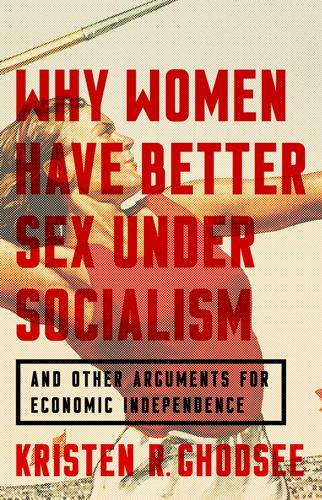
Why Women Have Better Sex Under Socialism: And Other Arguments for Economic Independence
by
Kristen R. Ghodsee
Published 20 Nov 2018
Another idea is some form of guaranteed employment like what they had in the state socialist countries. This is an old economic concept to prevent the human suffering caused during economic downturns. The United Kingdom’s Labour Party has proposed a job guarantee in which the state acts as the employer of last resort for young people ages eighteen to twenty-five who are willing to work but cannot find employment. Economists have debated job guarantees for decades, and in 2017 the Center for American Progress (CAP) threw its weight behind a proposal for a new “Marshall Plan for America,” which would create 4.4 million new jobs. The CAP proposal calls for a “large-scale, permanent program of public employment and infrastructure investment—similar to the Works Progress Administration (WPA) during the Great Depression but modernized for the 21st century.
…
“The landowner went into town and hired the men who needed work,” he told us. “He didn’t ask to see their documents.” In the same way, perhaps, the parable also supports the idea of job guarantees. The landowner provided employment to all those willing and able to work, and he paid them a fair wage no matter how long they actually labored in the vineyard. From the landowner’s perspective, it was a generous thing to do for people in need. For Americans, such generosity sounds suspiciously socialist.17 But let’s face it: job guarantees would not only benefit women. In the long run if privately owned robots and A.I. take over our economy, organic men may find themselves just as devalued in competitive labor markets as today’s organic women.
…
If we take sexual economics theory as one extreme model for how sexuality operates in a capitalist economy, then considering the experiences of the other extreme, the state socialist model, can help us think about possible ways to move toward something that combines the good aspects of both models while rejecting their obvious negatives. By implementing socialist policies to increase opportunities for women’s employment and leadership (through job guarantees or some form of quotas) as well as state-supported programs for parental leave and subsidized child care, women will be less coerced into selling their sexuality to meet their basic needs. Even universal health care would go a long way in reducing women’s economic dependence on men. Building a universal health care system is a very long way from implementing some form of authoritarianism, no matter what the right-wing pundits want us to believe.
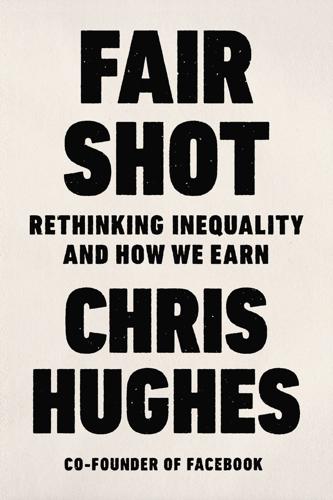
Fair Shot: Rethinking Inequality and How We Earn
by
Chris Hughes
Published 20 Feb 2018
The cost would be significantly higher than a guaranteed income, up to $775 billion a year for 14 million new government employees. There is little evidence that such a job guarantee program would work. A 2015 study by prominent economists ranked the effectiveness of 200 examples of labor market interventions. They found that subsidized public-sector employment programs consistently came in last, sometimes even having negative impacts. The arguments for a federal job guarantee require faith in government’s ability to connect people to jobs they want and need. The idea of relying on a DMV-like federal jobs database to help local nonprofits and churches match 14 million people up with new jobs seems far-fetched at best.
…
In fact, labor force participation rates are higher for single black mothers (76 percent) than for white men (72 percent). And that doesn’t even take into account any nontraditional work like caregiving that many women do. The malicious ways work requirements have been used in the past make me suspicious of some calls on the left for a federal job guarantee in lieu of a guaranteed income. Its basic premise is that the tens of millions of people who aren’t participating in the formal workforce can only be guaranteed economic security if they sign up for newly created, but still undefined, government jobs. One of the most concrete plans put forward by journalist Jeff Spross imagines that municipal government employees will hunt out local infrastructure projects and ask churches and civic organizations to submit ideas for new jobs.
…
The idea of relying on a DMV-like federal jobs database to help local nonprofits and churches match 14 million people up with new jobs seems far-fetched at best. Government can and already does provide good public service jobs to lots of people—nearly 15 percent of the American workforce is already employed by federal, state, or local governments. But relying on a job guarantee to provide broad economic stability is a step too far. It falls squarely in the tradition of government telling poor and middle-class people what to do with their lives, dictating what counts as a real job and what doesn’t. What we need instead is a social policy that provides people with opportunities to find the kinds of fulfilling work they want and deserve.
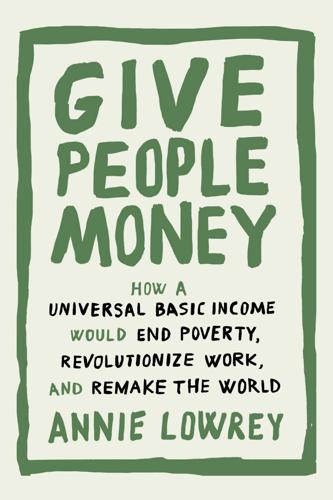
Give People Money
by
Annie Lowrey
Published 10 Jul 2018
They would help wear down white hegemony and would empower communities of color. They would also harness the power of America’s bootstraps culture. Another big idea is a jobs-guarantee program, meaning that Uncle Sam would provide all Americans work on demand. “The benefits of the guarantee for the formerly jobless should be obvious. But just as crucial is how it would help all already employed Americans. When workers compete with one another over an inadequate supply of jobs, they have no power,” Jeff Spross wrote in Democracy, stumping for the idea. A jobs guarantee, he argues, would foster better working conditions, better pay, better family stability, better work-life balance.
…
And on the left, support has grown dramatically for huge redistributive and universal programs. Gone are the careful means-testing proposals and incremental boosts of the Clinton and Obama presidencies, where the wonks reigned. Bernie Sanders is pushing for Medicare for All. The Center for American Progress, arguably the most influential think tank on the left, is pushing for a federal jobs guarantee. Seeing the tides changing, Hillary Clinton’s team was even quietly at work on a proposal to turn welfare into a kind of UBI for kids. Even more surprising, as she revealed in her 2017 campaign memoir What Happened, she toyed with the idea of running on a basic income, financed with revenues from “shared national resources,” such as royalties made from oil and gas companies and telecoms.
…
median net worth of white families: Janelle Jones, “The Racial Wealth Gap: How African-Americans Have Been Shortchanged out of the Materials to Build Wealth,” Working Economics Blog, Economic Policy Institute, Washington, DC, Feb. 13, 2017. no or negative net worth: Ibid. own just 5 percent of its wealth: Emily Badger, “Whites Have Huge Wealth Edge Over Blacks (but Don’t Know It),” New York Times, Sept. 18, 2017. “blacks and Latinos are virtually penniless”: Darrick Hamilton, “The Federal Job Guarantee: A Step Toward Racial Justice,” Dissent, Nov. 9, 2015. three times the rate for black families: Dedrick Asante-Muhammad, Chuck Collins, Josh Hoxie, and Emanuel Nieves, “The Ever-Growing Gap: Without Change, African-American and Latino Families Won’t Match White Wealth for Centuries” (Washington, DC: Institute for Policy Studies and the Corporation for Enterprise Development, Aug. 2016).
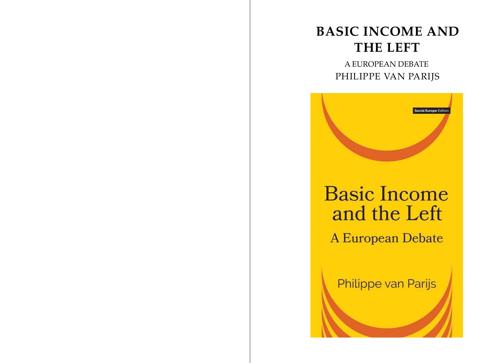
Basic Income And The Left
by
henningmeyer
Published 16 May 2018
In many countries, moreover, it would week that John Maynard Keynes envisaged for his not be easy at all to abolish current pension grandchildren but where possible such a policy systems – also an effect of basic income – as these would make sense and be a first re-balancing tool. embrace strict legal entitlements. Third, public policy-makers should be thinking about job guarantee schemes that would comple‐ A Handful Of Alternatives For all these reasons, the basic income does not look like a suitable policy response to the threat of tech‐ nological unemployment. What could work instead? A policy agenda based on the following five corner‐ stones could be a more comprehensive and adaptive solution.
…
First, education systems clearly need to adapt more 92 As such a scheme would in effect decouple the 93 payment for an activity from its content it creates an world in which most of the work is done by robots additional public policy tool to incentivise socially the fundamental question is: who owns the robots? beneficial activities. A job guarantee could, for instance, be effectively used to upgrade the health and care sectors, where on current demographic trends more human labour is required in the future. It could also be used to fund sports and other cultural activities locally and thus strengthen social cohesion in communities. This leads us to the fifth and final point: democra‐ tising capital ownership.
…
This leads us to the fifth and final point: democra‐ tising capital ownership. If the robot-owners are the winners in this brave new digital world then as many people as possible should have ownership stakes. This can work at both the individual and the macro level. At company level, models such as the ‘workers share’ could spread ownership amongst Such a job guarantee system would be managed employees so workers individually become less through a variety of different intermediaries and reliant on income from wages. At the macro level governance institutions. It is not about introducing a special purpose financial vehicles could be created planned economy.

The Corona Crash: How the Pandemic Will Change Capitalism
by
Grace Blakeley
Published 14 Oct 2020
Before the pandemic, just 2 per cent of people thought the British economy wasn’t in need of some degree of reform, while 63 per cent were in favour of a Green New Deal. The corona crash has undoubtedly seen public support for state intervention rise even further. A YouGov poll in April 2020 showed that 72 per cent of people supported the creation of a jobs guarantee scheme, 51 per cent supported a universal basic income ‘where the government makes sure everyone has an income, without a means test or a requirement to work’, and 74 per cent supported rent controls.23 The inefficiencies, inequities and corruption generated by state-monopoly capitalism do not result from centralisation in itself, but from centralisation absent the centrifugal force of democratic accountability.
…
, IMF Finance and Development 53, no. 2 (June 2016), imf.org. 21 Ellen Meiksins Wood, Democracy Against Capitalism: Renewing Historical Materialism, London: Verso, 2016. 22 Peter Mair, Ruling the Void: The Hollowing of Western Democracy, London and New York: Verso, 2013. 23 IPPR, ‘Public Support for a Paradigm Shift in Economic Policy’, Institute for Public Policy Research, 17 November 2019, ippr.org; Labour for a Green New Deal, ‘Majority of Public Support Ending Net Zero 2030 Emissions Target, Poll Finds’, press release, 7 November 2019, labourgnd.uk; ‘Public Support Universal Basic Income, Job Guarantee and Rent Controls to Respond to Coronavirus Pandemic, Poll Finds’, Independent, 27 April 2020.

The Weightless World: Strategies for Managing the Digital Economy
by
Diane Coyle
Published 29 Oct 1998
Richard Layard, a left-leaning academic at the London School of Economics, has proposed a job guarantee for anybody who has been unemployed for more than a year.12 His argument is that, although the public sector might have to create some jobs, the availability of an extra supply of labour would create extra private sector jobs — at a lower wage but still paying more than the social security benefit. Nobody likes low pay, but this sounds a lot better than long-term unemployment. However, there is little difference in practice between workfare schemes and a job guarantee. In a well-run workfare scheme that tried to match people to appropriate jobs the compulsion would bind only on a small minority, some of whom would be those who were doing better by fiddling the system or operating in the ‘underground’ economy anyway.
…
This is not the same as workfare — there need be no compulsion, although perhaps there could be a financial incentive to take up the offer. Nor does it amount to either creating public sector ‘make-work’ schemes or displacing other people from jobs. As the London School of Economics expert Richard Layard has argued,21 if you increase the supply of labour by providing a jobs guarantee, the real wage level will fall, demand for labour will rise. In a market economy, the jobs will be created, at a lower wage, many of them in the private sector. For there is no fixed number of jobs in the economy — the so-called ‘lump of labour fallacy’. If the wage rate is altered by a change in labour supply, the demand for labour will change too.
…
In a well-run workfare scheme that tried to match people to appropriate jobs the compulsion would bind only on a small minority, some of whom would be those who were doing better by fiddling the system or operating in the ‘underground’ economy anyway. The types of jobs would be similar in each case, job guarantee or enforced job. They are not the kind I The End of Welfare 139 would want, but then I have never been out of work for a year or more. To put the issue in proportion, there are seven times as many people in Britain claiming means-tested benefits as there are working in manufacturing industry. Almost half the population lives in a household depending on benefits.
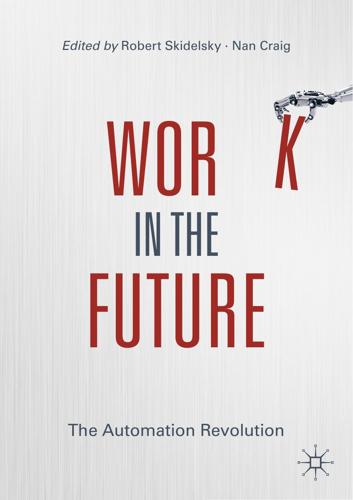
Work in the Future The Automation Revolution-Palgrave MacMillan (2019)
by
Robert Skidelsky Nan Craig
Published 15 Mar 2020
Graeber to figure out what to do with themselves, “or, how do you know they won’t do something stupid?” This is incidentally why those who hail from the professional- managerial classes, but nonetheless recognize radical measures of some sort are required, often prefer a job guarantee (JG). But historically, such programmes always create even more bullshit jobs. The only way to ensure that it wouldn’t, would be to create a job guarantee on top of UBI, so no one would be forced to take a pointless job just to keep a roof over their heads; in which case, JG would just be a way of providing help finding useful work until people who now have time on their hands begin to self-organize enough they don’t need bureaucrats to do that for them anymore.
…
Strong, 99 Artisans, 12, 29, 38, 74, 93, 94 Attitudes to work, 1, 4, 53–62, 73, 75 Aubrey, 184 Austria, 68, 196 Authenticity, 116 Authority, 120, 165 Automation restrictions on, 95 speed of, 21, 137 task automation vs job automation, 92, 93, 110, 141 Autonomous cars, 114, 115, 118 Autor, David, 59, 126 Autor Levy Murnane (ALM) hypothesis, 126–128, 131 B Bailey, Olivia, 180 Bairoch, Paul, 44, 46 Banking (automation of ), 87, 147 Bargaining, 68, 70, 177, 181, 182, 184, 185 Bastani, Aaron, 179n2 Beckert, Sven, 44 Berger, Thor, 95 Bessen, James, 4 Blumenbach, Wenzel, 41 Bosch, Gerhard, 179 Bostrom, Nick, 112, 113 Bourgeois household, 39 Brain and AI, 113 analagous to computer, 100, 103, 104, 115 Brown, William, 185 Bullshit jobs psychological effects, 162 Bureaucracy, 169 C Capitalism, 12, 17, 28, 53, 57, 58, 61, 75, 135, 159 Capper, Phillip, 127, 128 Care work, 3, 48, 75, 117, 178 Carlyle, Thomas, 28 Catholic, 74 Central Europe, 38, 40 Centralisation, 69, 175, 176 Chalmers, David, 103 Chatbots, 91 Chen, Chinchih, 95 Chess (and AI), 112 China, 95, 135 Christian (view of work), 74, 75, 161, 166 Clark, A, 60 Class, 13–15, 17, 30, 39, 43, 46, 47, 118, 159, 160, 162, 165, 172 Classical economics, 54, 55 Climate change, 30, 198 Cloud computing, 139, 140 Coase, Ronald, 70 Coats, David, 184, 185 Collective bargaining, 68, 181, 182, 185 Communism, 13, 57, 58, 61 Competition, 12, 16–18, 39, 91, 94, 112, 115, 119, 139, 140, 152, 199 Index Computational Creativity, 109, 115, 120, 121 Computer aided design (CAD), 34, 35 Computer programming, 100, 116 Computer revolution, 90, 94, 95, 99 Computers, 20, 34, 84, 86, 90, 92–94, 99–107, 110, 111, 115, 116, 120, 131, 134, 146, 147, 151, 197 Consciousness of AI, 110–111 the hard problem, 103 of humans, 105 objective vs. subjective, 102, 103 Consumerism/consumer society, 30, 74, 161, 194 Consumption, 3, 5, 12, 13, 16, 19, 38, 41, 56, 59, 61, 62, 66, 85, 88, 166, 176, 192, 194, 197, 199 Contested concepts, 120 Cooperatives, 40, 61, 69 Craftsmanship, 3, 11, 35, 36, 39, 194 Craig, Nan, 4, 179 Creative work, 3, 48, 74 Creativity, 3, 5, 57, 91, 105–107, 110, 120, 121, 193–195 D D’Arcy, Conor, 177 Data, 2, 84, 92, 107, 129, 130, 137–140, 146, 149, 150, 153, 178, 191, 197, 198 Davies, W.H., 31 De Spiegelaere, Stan, 181, 183 205 Deep Blue, 91, 112, 129, 130 Dekker, Fabian, 180 Deliveroo, 136 Demand effects on automation, 4, 21, 86 elasticity, 86 of work, 4, 13, 15, 16, 76, 158, 164, 180, 199 Democracy, 28 Denmark, 68, 177, 180 Dennett, Daniel, 100, 102, 103 Developing countries, 145 Digital economy, 5, 19, 125–132, 140 Digital revolution, 70 Division of labour, 11, 35, 38, 43, 44, 55 Donkin, Richard, 3 Dosi, Giovanni, 192, 195 Do what you love, 73, 74, 76 Dreyfus, Herbert, 100 E Economics, 1, 4, 5, 7, 10, 12, 14, 15, 18, 29, 30, 53–62 Economic view of work, 53–62 Education, 41, 42, 48, 67–69, 126, 131, 169, 171, 196, 197 Efficiency, 5, 16, 75, 159, 168, 184 Empathy, 106, 107 Employment law, 68 rates, 67, 68, 70 English East India Company, 44 Entrepreneurs, 29, 70, 77, 190, 192, 197, 199 Environment, 25, 31, 56, 70, 87, 91, 109, 111, 113, 120, 178, 198 206 Index Equality of opportunity, 69 of outcome, 69 social, 163 Ethics of AI, 6, 110, 119, 145–153, 197 stagnation of, 151–152 of work, 28 Exit, 69 Experience, 36, 61, 85, 90, 94, 99–105, 116, 119, 189, 190 F Facebook, 136–141, 161 Factory system, 29–30 Families, 3, 26, 29, 37–48, 75, 76, 138, 159, 162, 178, 196 Feminist (arguments about work), 79 Finance, 48, 87, 170, 197 Fire, harnessing/discovery of, 29 Firestone, Shulamith, 159 Firms, 16, 17, 68, 70, 85, 87, 133, 148, 149, 151, 152, 168, 169, 172, 190 Flexicurity, 68 Ford, Henry, 30 Ford, Martin, 2, 59, 106 France, 4, 6, 66–70, 177, 181, 182 Franklin, Benjamin, 28 Freeman, Chris, 192 French Revolution, 43 Frey, Carl Benedikt, 4, 180 Friedman, Milton, 171 Fuzzy matching, 148, 149 G Galbraith, JK, 66 GDP, 19, 178 Gender, 38, 43, 44, 48, 151, 178 Gendered division of labour, 38, 43, 44 Germany, 6, 177, 180–182, 196 Gig economy, 27, 184 Globalisation, 20, 30, 90, 95 Google Google Cloud, 140 Google Home, 140 Google Maps, 35 Google Translate, 106 Google DeepMind, 112, 119 Gorz, A., 59 Graeber, David, 6, 76, 157, 161, 168 Greek ideas of work, 74 Growth, 2, 6, 7, 12, 25, 27, 30, 31, 55, 69, 75, 85, 86, 88, 110, 126, 128, 130, 135, 169, 176, 180, 183, 185, 190, 192, 198, 200 H Happiness, 5, 62, 195 Harrop, Andrew, 180 Hassabis, Demis, 119 Hayden, Anders, 182, 183 Healthcare, 3, 87, 94, 117, 165, 197 Heterodox economics, 54, 56, 62 Hierarchy, 46, 48, 55, 69, 170 High-skilled jobs, 128, 134 Homejoy, 135 Homo economicus, 56, 57 Homo laborans, 3 Homo ludens, 3 Household economy, 4, 38–40, 45, 47 Housewives, 42, 43, 46, 47 Housework, 39, 40, 42, 44, 47 Hunter-gatherers, 11, 26, 27, 30 Index I Idleness, 54 India, 44–47 Industrial Revolution, 2, 4, 14, 29, 37, 75, 93, 94, 175, 177, 190, 191 Inequality, 67–69, 86, 87, 192, 193, 199, 200 Informal economy, 47 Information technology, 86, 161 Infrastructure digital, 140 physical, 103 Innovation, 6, 10, 14, 16, 18, 34, 67, 69, 189–199 process innovation vs. product innovation, 16, 18, 190–191, 195 International Labour Organisation (ILO), 193 Internet of Things, 139, 191 Investment in capital, 114 in skills, 70 J Japan, 117 Jensen, C, 55 Job guarantee, 172 Jobs, Steve, 73 Journalism automation of, 118 clickbait, 118 Juries, algorithmic selection of, 150, 153 K Karstgen, Jack, 196 Kasparov, Garry, 91, 112, 129, 130 207 Katz, Lawrence, 198 Kennedy, John F., 160 Keune, Maarten, 180 Keynes, John Maynard, 6, 9, 11, 27, 60, 61, 160, 161, 176 King, Martin Luther, 171 Knowledge (tacit vs. explicit), 127 Komlosy, Andrea, 4, 75 Kubrick, Stanley, 26 Kurzweil, Raymond, 101, 103, 104 Kuznets, Simon, 190 L Labour, 3, 10, 11, 13–16, 18–21, 29, 34–36, 38, 43–46, 55, 59, 65–70, 73–76, 85–87, 89, 90, 93, 94, 96, 114, 125, 126, 128, 130, 131, 141, 158, 165, 176–180, 183–184, 189, 190, 192–196, 199–200 Labour market polarisation, 67, 70, 126 Labour markets, 67, 68, 70, 87, 90, 96, 125, 126, 128, 130, 131, 141, 178, 183–184, 189, 192, 193, 195, 196, 199–200 Labour-saving effect, 86 Lall, Sanjaya, 193 Language translation, 105, 106 Latent Damage Act 1986, 127 Law automation of, 145, 152, 153 ethics, 145–153 Lawrence, Mathew, 177 Layton, E., 58 Le Bon, Gustave, 101 Lee, Richard, 26 Legal search/legal discovery, 148–150 208 Index Leisure, 3, 10, 11, 19, 27, 48, 55, 56, 59–62, 65, 77, 79, 117, 118, 159, 161, 178, 180, 182, 184, 191, 195 Levy, Frank, 126 List, Friedrich, 193 Love, 55, 74, 76, 99, 103, 106, 112, 118 Low-income jobs, 96 Loyalty, 69 Luddites, 2, 14, 18, 35, 59, 94, 96 Lyft, 136 M Machine learning, 59, 84, 90, 91, 96, 138, 139 Machines, 2, 5, 10, 12–15, 17, 19, 20, 35, 36, 38, 59, 84–87, 90–96, 99–103, 105–107, 109–121, 127–131, 138, 139, 145, 147, 148, 160, 168, 191 Machine vision, 120 Malthusian, 19 Man, Henrik de, 79 Management, 27, 30, 41, 69, 70 management theory/ organisational theory (see also Scientific management) Mann, Michael, 46 Manual work, 1 Manufacturing, 86, 87, 90, 94, 95, 176, 184, 198 Markets/market forces, 5, 6, 21, 38, 44–46, 67, 68, 70, 79, 85–88, 90, 96, 120, 125, 126, 128, 130, 131, 140, 141, 150, 152, 159, 164, 165, 171, 178, 183, 189–193, 195, 196, 198–200 Marx, Karl, 17, 18, 27, 56–59, 61, 62, 78 Matrimonial relationships, 37 McCormack, Win, 159 Meaning, 4, 9, 10, 19, 25, 54, 57, 58, 66, 73, 76, 78, 79, 84, 106, 116, 176, 180 Mechanisation, 15, 17, 19, 20, 192 Meckling, W., 55 Méda, Dominique, 183 Medical diagnosis (automation of ), 128, 129 Menger, Pierre-Michel, 4 Mental labour, 3 Meritocracy, 28 Middle-income jobs, 90, 93, 94 Migration, 40, 47 Minimum wage, 67, 69 Mining, 26, 38, 197 Mokyr, J., 59 Monopolies, 6, 136, 138–140 Morals/morality, 48, 77, 159, 160, 162, 164, 166, 167 Moravec’s paradox, 131 Murnane, Richard, 126 N Nagel, Thomas, 100, 102 National Living wage, 184 Needs vs.
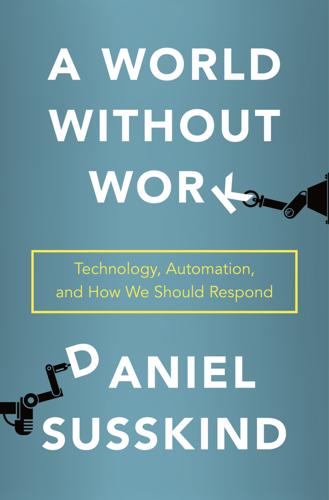
A World Without Work: Technology, Automation, and How We Should Respond
by
Daniel Susskind
Published 14 Jan 2020
Dunlap Jr., “Telecasts to Homes Begin on April 30—World’s Fair Will Be the Stage,” New York Times, 19 March 1939. 58. “Ulysses” in Alfred Tennyson, Selected Poems (London: Penguin Books, 2007). 59. Dylan Matthews, “4 Big Questions About Job Guarantees,” Vox, 27 April 2018; Sean McElwee, Colin McAuliffe, and Jon Green, “Why Democrats Should Embrace a Federal Jobs Guarantee,” Nation, 20 March 2018. 60. See, for instance, Arendt, Human Condition, on “labor,” “work,” and “action.” Many socialists, meanwhile, hope that in the future the distinction might melt away altogether, as work becomes leisure, leisure becomes work, both become, in Marx’s words, “not only a means of life but life’s prime want.”
…
This is not as radical as it sounds: in fact, governments already do this on a huge scale. Seven of the top ten largest employers in the world are state-owned institutions—the US Department of Defense, the NHS, the State Grid Corporation of China, and the Indian Railways, to name a few. Even today, the idea of a “job guarantee” is already gathering favor and interest. In the United States, several Democratic candidates for the 2020 presidential election endorse the notion of offering everyone a job, and 52 percent of Americans support the policy. To put those numbers in context, the pollster responsible described it as “one of the most popular issues we’ve ever polled.”59 The discussion about people who want to work in a world with less paid work does leave us with a conceptual puzzle.
…
See also specific people Haldane, Andy Harari, Yuval Hargreaves, James Hassabis, Demis hate speech Haugeland, John Hawking, Stephen Hayek, Friedrich health care industry Big Tech and changing-pie effect and task encroachment and Hesiod hoaxes Hobbes, Thomas Hofstadter, Douglas hollowing out Holmes, Oliver Wendell Homo Deus (Harari) Horse Plague horses Houdin, Jean-Eugene Robert hours worked per week housework Hughes, Chris human capital education and labor income inequality and overview of sharing of human capital century humans modeling machines on pragmatism vs. purism and superiority assumption and Hume, David hunter-gatherers identity identity mismatch IKEA chair assembly ImageNet project immigrants income-sharing Industrial Revolution automation anxiety and meaning and misplaced anxiety and participation rate and relative costs and unskill-bias and inequality in capital income current trends in distribution problem and future and between labor and capital in labor income overview of technological unemployment and types of capital and inferiority assumption Information Communication Technology information highway inheritance taxes innovation, importance of “In Praise of Idleness” (Russell) Instagram Institute of Museum and Library Services insurance industry intelligence. See also artificial intelligence defining fall of general intelligence explosion intelligence of the gaps intelligent design Internet Jahoda, Marie Japan Jeopardy! 61–62 job guarantees jobs, tasks vs. Jobs, Steve journalism judgment Juno Kaldor, Nicholas Kasparov, Garry Katz, Lawrence Kay, John Kennedy, John F. Keynes, John Maynard advanced guard and age of leisure and changing facts and distribution problem and labor to capital ratio and process of technological unemployment and technological unemployment and timing and Khan Academy Khanin, Grigorii al-Khwarizmi, Abdallah Muhammad ibn Musa killer robots knitting machine Krugman, Paul Kurzweil, Ray labor.

The Ministry for the Future: A Novel
by
Kim Stanley Robinson
Published 5 Oct 2020
73 Modern Monetary Theory was in some ways a re-introduction of Keynesian economics into the climate crisis. Its foundational axiom was that the economy works for humans, not humans for the economy; this implied that full employment should be the policy goal of the governments that made and enforced the economic laws. So a job guarantee (JG) was central to MMT’s ideas of good governance. Anyone who wanted a job could get one from the government, “the employer of last resort,” and all these public workers were to be paid a living wage, which would have the effect of raising the private wage floor also to that level, in order to remain competitive for workers.
…
MMT also reiterated Keynes’s point that governments did not experience debt like individuals did, because governments made money in the first place, and could create new money without automatically causing inflation; the quantitative easing (QE) after the 2008 crash demonstrated this price stability despite major infusions of new money. So MMT recommended robust stimulus spending in the form of carbon quantitative easing (CQE) as well as a job guarantee. Both were to be directed to the effort to decarbonize civilization and to get in a sustainable balance with the biosphere, humanity’s one and only support system. Critics of MMT, who sometimes called it “Magic Money Tree,” pointed out that Keynes had advocated deficit spending during economic contractions, but also the reverse in times of expansion, governments gathering in enough in taxes to fund things through the next crisis.
…
He walked across town to his school and spoke to the assembled students, and all the young faces were enough to slay him on the spot. Talk about burning desire. They wanted what he had, and he didn’t know what to say to them. He said, To get anywhere in this world you must hitch your tiger to your chariot. He went out with them to the fields outside the city where they were working in the India Regenerative Agriculture job guarantee program. There was full employment in India now, and the work was hard but it was scientifically based too, and drawing carbon into the soil year by year in ways making them all safer. He worked with them planting corn and then repairing a terrace wall, and ended the day feeling cooked. I’m still a hill boy, he told them, I can’t hack the terai, it’s too hot.
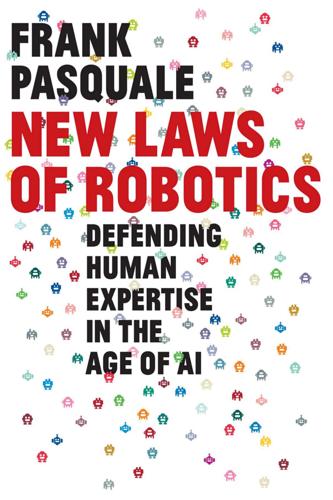
New Laws of Robotics: Defending Human Expertise in the Age of AI
by
Frank Pasquale
Published 14 May 2020
Alstott, The Public Option: How to Expand Freedom, Increase Opportunity, and Promote Equality (Cambridge, MA: Harvard University Press, 2019). 34. Pavlina Tcherneva in conversation with David Roberts, “30 Million Americans are Unemployed. Here’s How to Employ Them,” Vox, May 4, 2020, at https://www.vox.com/science-and-health/2020/5/4/21243725/coronavirus-unemployment-cares-act-federal-job-guarantee-green-new-deal-pavlina-tcherneva. Pavlina Tcherneva, “The Job Guarantee: Design, Jobs, and Implementation,” Levy Economics Institute, Working Papers Series No. 902 (2018), https://papers.ssrn.com/sol3/papers.cfm?abstract_id=3155289. 35. William J. Baumol and William G. Bowen, Performing Arts: The Economic Dilemma (New York: Twentieth Century Fund, 1966). 36.
…
The more generous a UBI is, the more likely it is to provoke political resistance to the taxation necessary to fund it. Advocates of a UBI could greatly strengthen their case by focusing their first demands for redistribution on fairly taxing the wealthy, and then gradually expanding their proposed tax base.31 FROM UNIVERSAL BASIC INCOME TO JOB GUARANTEE Funding issues may not be the most significant challenge for a UBI. Whether framed as humanitarian relief, Keynesian intervention to stimulate the economy, or just compensation, UBI runs into practical difficulties quickly. Landlords will not ignore a new subvention; they may simply raise rents to capture it.
…
As that Keynesian parable suggests, aspects of MMT are decades old—and some of its oft-repeated insights are older than that. Keynesianism took root amid a global depression, when unemployment sparked enormous personal suffering and political upheaval. Its revival now is unsurprising, given the prospect of a pandemic-induced global depression. A job guarantee is meant not merely to put underutilized labor to work, but also to set a floor of compensation for workers that the (rest of the) private sector must best in order to attract workers. Modern monetary theory also makes some important deviations from Keynesian orthodoxy. One reason Keynes became a foundation for modern macroeconomics is the studied neutrality of his doctrine.
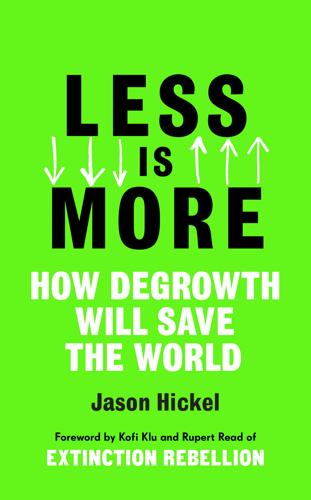
Less Is More: How Degrowth Will Save the World
by
Jason Hickel
Published 12 Aug 2020
As we shed unnecessary jobs we can shorten the working week, going from forty-seven hours (the average in the United States) down to thirty or perhaps even twenty hours, distributing necessary labour more evenly among the working population and maintaining full employment. We can facilitate this process by introducing a job guarantee (a policy that happens to be resoundingly popular23), and roll out retraining programmes so that people laid off from shrinking industries can transition easily to others (renewable energy, public services, maintenance, etc.). This approach would allow everyone to benefit from the time that’s liberated by reducing material throughput.
…
And yet while capitalism has produced the technological capacity to provide for everyone’s needs many times over, and to liberate people from unnecessary labour, it deploys that technology instead to create new ‘needs’ and to endlessly expand the treadmill of production and consumption. The promise of true freedom is perpetually deferred.33 Reduce inequality As we shorten the working week, we need to ensure that wages remain adequate for people to live well. Some of this will be automatic, as a shorter working week and a job guarantee would strengthen the bargaining power of labour. But we can also introduce a living wage policy that’s pegged to the week or month, rather than to the hour. In a degrowth scenario, this means shifting income from capital back to labour, reversing the appropriation of productivity gains that has happened since Keynes penned his essay in 1930.
…
Union of Concerned Scientists, 2012. 16 I say ‘in most cases’ because while the vast majority of beef is consumed as a commodity, there are some Indigenous or traditional pastoral communities (such as the Maasai in Kenya) that rely on cattle for subsistence. 17 Elke Stehfest et al., ‘Climate benefits of changing diet,’ Climatic Change 95(1–2), 2009, pp. 83–102. 18 Joseph Poore and Thomas Nemecek, ‘Reducing food’s environmental impacts through producers and consumers,’ Science 360(6392), 2018, pp. 987–992. 19 Marco Springmann et al., ‘Health-motivated taxes on red and processed meat: A modelling study on optimal tax levels and associated health impacts,’ PloS One 13(11), 2018. 20 In the US, house sizes have grown from 551 square feet per person in 1973 to 1,058 square feet per person in 2015, US Census Bureau. 21 Fridolin Krausmann et al., ‘Global socioeconomic material stocks rise 23-fold over the 20th century and require half of annual resource use,’ Proceedings of the National Academy of Sciences 114(8), 2017, pp. 1880–1885. 22 Bringezu, ‘Possible target corridor for sustainable use of global material resources.’ 23 Multiple polls in the United States indicate strong majority support for a federal job guarantee. In the UK, it’s 72% (YouGov, 2020). 24 This research is reported in Kyle Knight, Eugene Rosa and Juliet Schor, ‘Could working less reduce pressures on the environment? A cross-national panel analysis of OECD countries, 1970–2007,’ Global Environmental Change 23(4), 2013, p. 691–700. It’s interesting to note that the extra happiness accruing from free time is not positional, in contrast to happiness associated with income, so its benefits are durable.
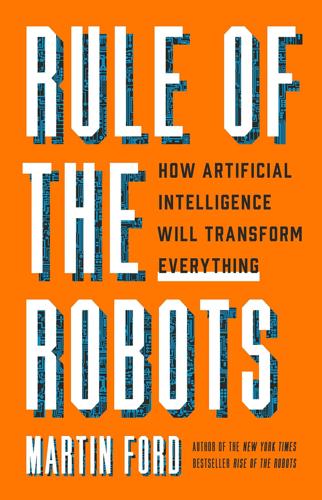
Rule of the Robots: How Artificial Intelligence Will Transform Everything
by
Martin Ford
Published 13 Sep 2021
Despite this advantage, there is, for many people, a strong psychological aversion to the idea of simply handing money to people, or as some have put it, “paying people to be alive,” and this attitude is likely to continue to create a significant political impediment to actual implementation of a UBI. To be sure, there are other policy alternatives, one of the most commonly cited being a jobs guarantee. The idea of having the government become the employer of last resort for anyone who needs a job may seem superficially attractive, but I think it has significant disadvantages. A jobs guarantee would be far less universal than a basic income, and inevitably many of the people who are most in need of assistance would be left out. Such a system would require a massive, costly and likely ever-expanding bureaucracy.
…
Ultimately, the government would either have to fire those who underperformed or broke the rules—which would exclude any impacted individuals from the safety net—or the jobs program would effectively become the equivalent of a very expensive and inefficient basic income scheme. A large fraction of the positions created would in all likelihood be “bullshit jobs,” and unlike a basic income program, a jobs guarantee would directly attract workers away from more productive positions in the private sector. In contrast, a basic income requires little in the way of a bureaucracy and would take advantage of the government’s existing competence at sending out checks via programs like Social Security. While I think a basic income is ultimately the best overall solution to the distributional issues that will emerge as artificial intelligence becomes ubiquitous, it is by no means a panacea.
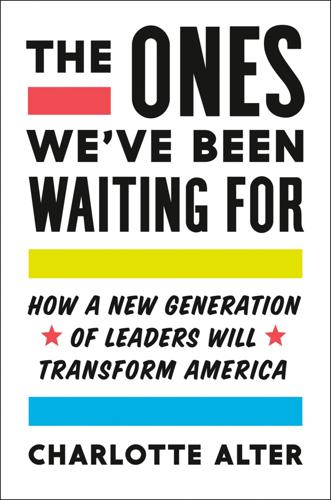
The Ones We've Been Waiting For: How a New Generation of Leaders Will Transform America
by
Charlotte Alter
Published 18 Feb 2020
And when you don’t have full-time jobs, you don’t have the insurance in the same way that people had. So it should be no secret why millennials want to decouple your insurance status from your employment status.” For her, democratic socialism was about ensuring Medicare for All, mandating a living wage, and creating a Green New Deal with a jobs guarantee to put people to work. As early as 2010, young Americans like Alexandria were already much more skeptical of capitalism than their parents—43 percent of eighteen- to twenty-nine-year-olds thought “socialism” had a positive connotation, about twenty points higher than their parents and thirty points higher than their grandparents.
…
According to John Della Volpe of Harvard’s Institute of Politics, by 2018 only 43 percent of eighteen- to twenty-nine-year-olds said they supported capitalism, while 39 percent said they supported democratic socialism. And even if they didn’t quite embrace the label, many young people were embracing socialist ideas: the poll found strong majority support for Medicare for All, a federal jobs guarantee, and tuition-free public college. Gallup found that young people’s approval of capitalism had dropped twenty-three points between 2010 and 2018. By 2019, democratic socialism had so deeply pervaded millennial attitudes that even young Republicans acknowledged its appeal. In one 2019 poll, roughly 30 percent of Republicans under thirty-five (and 75 percent of young Democrats) said they thought the word “socialism” had a positive connotation, and that there was an unfairness in the economic system that favored the wealthy.
…
She would meet with people all over the district and look intensely into their faces as they told her their concerns, pursing her lips and narrowing her eyes, and she’d take notes of those conversations in little notebooks and then go home and type them up into a big file. She never got too ideological. She said “health care for all” instead of Medicare for All—she wanted to fix and update the Affordable Care Act, not revamp the entire system. She talked about an “innovation agenda” instead of a jobs guarantee. And she tried not to talk about Trump too much. Instead, any question in her district could be answered with a reinvestment in Michigan manufacturing. Any problem would be solved with more manufacturing jobs. She loved to talk to the builders, the tinkerers, the people who made things. When she’d go around to people’s houses to canvass, she’d always look at what car was in a driveway, and if it was a GM or Chrysler model, she’d exclaim, “Great car!”

Imaginable: How to See the Future Coming and Feel Ready for Anything―Even Things That Seem Impossible Today
by
Jane McGonigal
Published 22 Mar 2022
Following these trends, we all may have more genuine friends in the future. Free or low-cost learning for a lifetime: In the US, free public education has historically ended at grade twelve. But a decade from now, tuition-free community college, low-cost online certificate programs that come with job guarantees, and other learning innovations will make it possible to never stop learning. Antiaging biotech: New technologies like “neuron reprogramming” can successfully reverse the biological clock and unwind the effects of aging in animal lab experiments today. Ten years from now, they may start to lengthen the healthy, active human lifespan by decades.
…
Try to have a bit of balance in your list—at least one of the forces you pick should feel like a risk to you, and at least one should feel like an opportunity: the climate crisis post-pandemic trauma social justice movements increasing economic inequality social and political tensions caused by refugee crises and mass migration automation of work decreasing birthrates in Western countries and a “youth boom” in Africa shifting religious majorities and increasing theological diversity the global switch to renewable energy sources alternatives to capitalism and market-based economies social media–driven misinformation, disinformation, and conspiracy theories rise of authoritarianism and loss of faith in democracy widespread adoption of facial recognition and surveillance technologies digital currencies, cryptocurrency, and programmable money universal basic income and direct cash transfers internet shutdowns mandated by government or law enforcement the “right to disconnect” movement and four-day workweeks lifelong learning and “reskilling” at the workplace job guarantees regenerative design and the circular economy genomic research and CRISPR genetic modification the Internet of Things augmented and virtual reality satellite networks and space internet If there’s something on the institute’s list above that you don’t know anything about at all, this is the perfect opportunity to go find your first clue.
…
Instead of incremental inching upward, is there a dollar amount that would unleash a tidal wave of economic healing? What about a maximum wage? What would be a fair cap on annual compensation? How might that change the kinds of jobs people are drawn to? Can we imagine a new era of federal job guarantees, in which the government hires unemployed workers as an “employer of last resort”? What kinds of jobs should they be? What do we need more people doing in order to make a better world? What if we treated secure access to food and shelter as a universal human right? How could we create a new world of guaranteed meals and guaranteed housing for all?
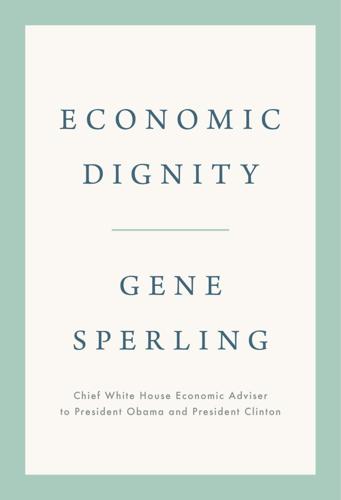
Economic Dignity
by
Gene Sperling
Published 14 Sep 2020
Benjamin Wallace-Wells, “Sherrod Brown Wants to Bring a Working-Class Ethos Back to the Democratic Party,” New Yorker, December 13, 2018, https://www.newyorker.com/news/the-political-scene/sherrod-brown-wants-to-bring-a-working-class-ethos-back-to-the-democratic-party; and “The Dignity of Work,” accessed November 5, 2019, https://dignityofwork.com/. 15. Mark Paul, William Darity Jr., and Darrick Hamilton, “The Federal Job Guarantee—A Policy to Achieve Permanent Full Employment,” Center on Budget and Policy Priorities, March 9, 2018, https://www.cbpp.org/research/full-employment/the-federal-job-guarantee-a-policy-to-achieve-permanent-full-employment. 16. Alexander Hamilton, “Federalist No. 1,” October 27, 1787, https://teachingamericanhistory.org/library/document/federalist-no-1/. 17. Gunnar Myrdal, An American Dilemma: The Negro Problem and Modern Democracy (New York: Harper & Brothers Publishers, 1944). 18.
…
It’s about being able to look your kid in the eye and say, ‘Honey, it’s going to be okay.’”13 Ohio senator Sherrod Brown has used the “dignity of work” as his mantra and policy frame, including during his listening tour when he contemplated running for president in 2019.14 It was a common theme of New Jersey senator Cory Booker in his presidential campaign as well. Advocates of job guarantees like Darrick Hamilton, and Rustin and Randolph before him, often point to “dignity” as a basis for ensuring that Americans can always provide for themselves and others through work.15 Yet for all its invocations and all its intuitive power, the notion of economic dignity is rarely defined in any comprehensive or rigorous way—and certainly not with the depth that allows it to serve as a clear end goal and organizing principle for national economic policy.
…
State of Ohio, 11 James, LeBron, 7, 109–10 janitorial workers, 78–79, 227–28, 232–33, 239 Jaravel, Xavier, 175 Jayaraman, Saru, 79–80, 265 Jefferson, Thomas, 24 Jim Crow laws, 63, 284, 293 Jimmy John’s Gourmet Sandwiches, 264 job churn, 129 “job crafting,” 227–28 job guarantees, 15 job intermediaries, 197–98 job losses, 131–34, 133, 137–38, 221 job navigators, 212–15, 338n job promotions, 229, 232–33 Jobs, Laurene Powell, 289 job skills, 269–71, 281–84 jobs programs, xv, 220–22 job training, 129, 132, 281–84 Johnson, Lyndon, 25, 190 Johnson, Richard, 49 Johnson, Simon, 98–99, 138 “joint employer” test, 253 Jones, Mary Harris “Mother,” 67–68, 72, 77 Jordan–United States Free Trade Agreement, 123 Jorwic, Nicole, 211 Jump-Starting America (Gruber and Johnson), 98–99 Kagan, Daniel, 262 Kaldor-Hicks efficiency formula, 134–35 Kant, Immanuel, 14, 15, 136, 224–25, 228–29 Katz, Lawrence, 231, 270, 273, 278 Kelley, Florence, 65–67, 80 Kennedy, Anthony, 17–18 Kennedy, Edward “Ted,” 153 Kennedy, John F., 5–6 Kennedy, Robert F., 4, 41, 44–45 Khan, Lina, 84, 115 Khouri, Paul, 199–200 Killewald, Alexandra, 47–48 Kimmel, Andrew, 40 King, Justin, 250 King, Martin Luther, Jr., xvii–xviii, 24–25, 38, 73–74, 154–56, 163, 172 “All Labor Has Dignity” speech, 154, 155–56 “I Have a Dream” speech, 46 Memphis sanitation strike, 14–15, 155–56 Kipling, Rudyard, 13 Kliff, Sarah, 40 Klobuchar, Amy, 125, 184 Knights of Labor, 67–68 Koch Foods, 118 Korinek, Anton, 136, 146 Krause, Eleanor, 60 Kroc, Ray, 253 Krueger, Alan, 42, 60, 177, 270 Krugman, Paul, 270–71 Kumho Tire, 251 Kurtz, Dayna M., 184 “labor co-ops,” 169 labor markets and worker power, 64, 68–69, 77–80, 168–69, 247–68 expansion in workers’ capacity to bond together, 248–60 involuntary servitude, 260–65 “take this job and shove it” power, 243, 265–68 labor unions, 96, 249–51.
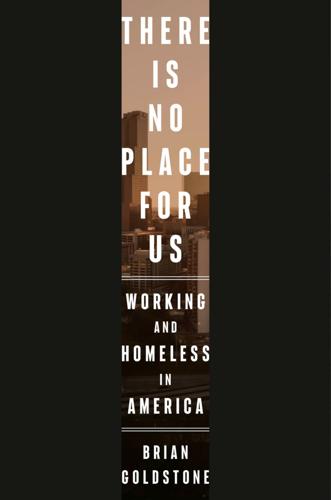
There Is No Place for Us: Working and Homeless in America
by
Brian Goldstone
Published 25 Mar 2025
GO TO NOTE REFERENCE IN TEXT Some fifty-three million Americans: Martha Ross and Nicole Bateman, “Low-Wage Work Is More Pervasive Than You Think and There Aren’t Enough ‘Good Jobs’ to Go Around,” Brookings, November 21, 2019. Recent years have seen renewed calls for a federal job guarantee as a powerful tool to combat economic inequality and racial disparities. Proponents argue that such a program would empower workers, establish a wage floor, and eliminate the threat of unemployment—directly addressing the conditions that drive “working homelessness.” See Darrick Hamilton, “The Federal Job Guarantee: A Step Toward Racial Justice,” Dissent, November 9, 2015, https://www.dissentmagazine.org/online_articles/federal-job-guarantee-racial-justice-darrick-hamilton/; Mark Paul, William Darity Jr., Darrick Hamilton, and Khaing Zaw, “A Path to Ending Poverty by Way of Ending Unemployment: A Federal Job Guarantee,” RSF: The Russell Sage Foundation Journal of the Social Sciences, 4(3) 2018, https://socialequity.duke.edu/wp-content/uploads/2019/10/A-Path-to-Ending-Poverty.pdf.
…
See Darrick Hamilton, “The Federal Job Guarantee: A Step Toward Racial Justice,” Dissent, November 9, 2015, https://www.dissentmagazine.org/online_articles/federal-job-guarantee-racial-justice-darrick-hamilton/; Mark Paul, William Darity Jr., Darrick Hamilton, and Khaing Zaw, “A Path to Ending Poverty by Way of Ending Unemployment: A Federal Job Guarantee,” RSF: The Russell Sage Foundation Journal of the Social Sciences, 4(3) 2018, https://socialequity.duke.edu/wp-content/uploads/2019/10/A-Path-to-Ending-Poverty.pdf. GO TO NOTE REFERENCE IN TEXT In Atlanta, the “housing wage”: Aurand et al., “Out of Reach” 2023, 71–72. GO TO NOTE REFERENCE IN TEXT Georgia’s minimum wage: “Your 2024 Guide to Every State’s Minimum Wage,” Paycom, December 21, 2023. GO TO NOTE REFERENCE IN TEXT In Boston, a tenant: Andrew Aurand, Mackenzie Pish, Ikra Rafi, and Diane Yentel, “Out of Reach: The High Cost of Housing,” National Low Income Housing Coalition, 2024.
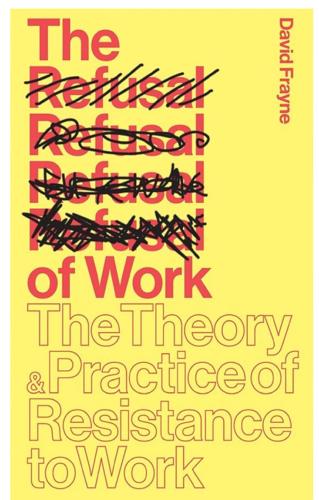
The Refusal of Work: The Theory and Practice of Resistance to Work
by
David Frayne
Published 15 Nov 2015
The survey was conducted with 2,808 students at 115 UK universities, and accounts for the money owed to parents, banks, and student loan providers. See www.push.co.uk Return to text. 5. A 2014 survey by savoo.co.uk asked 1,505 graduates whether they would be willing to work in an unpaid internship to gain experience. Some 85% said they would, with 65% saying that they would do so even if there was no job guarantee at the end (HR Review, 2014). Return to text. 6. Figures from the Economic History Association, ‘Hours of work in US history’ (available at http://eh.net/encyclopedia/hours-of-work-in-u-s-history/). Return to text. 7. Figures from eMarketer Digital Intelligence, ‘Mobile Shines Amid Rising Digital Ad Spending’, 13 October 2011 (available at www.emarketer.com/Article.aspx?
…
Honneth, A. (1995) The Struggle for Recognition, Oxford, Cambridge: Blackwell. Honoré, C. (2004) In Praise of Slowness, New York: Harper Collins. Horkheimer, M. (1974) Critique of Instrumental Reason, New York: Continuum. HR Review (2014) ‘Most Graduates Happy to Take on Unpaid Internships, Even With No Job Guarantee’, HR Review website, 30 July (available at: www.hrreview.co.uk/hr-news/l-d-news/graduates-happy-to-take-on-unpaid-internships/52291). HSE (2014) ‘Health and Safety Statistics: Annual Report for Great Britain’ (available at: www.hse.gov.uk/statistics/overall/hssh1314.pdf). Huffington Post (2013) ‘Benefit Reforms Are Putting Fairness Back at the Heart of Britain’, 6 April (available at: www.huffingtonpost.co.uk/2013/04/06/benefit-reforms-cameron-welfare-_n_3029737.html).
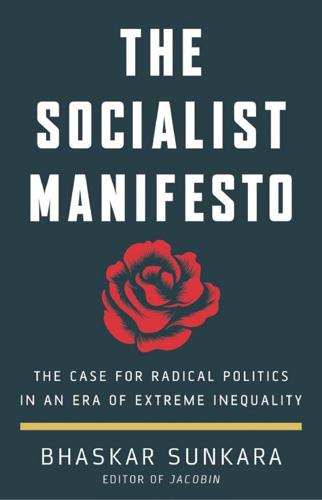
The Socialist Manifesto: The Case for Radical Politics in an Era of Extreme Inequality
by
Bhaskar Sunkara
Published 1 Feb 2019
When asked the same question in 2016, just 27 percent saw immigrants as a burden, and 63 percent thought immigration was a good thing.3 Even after being subjected to three years of attacks from both the Right and corporate Democrats, Bernie Sanders is among the most popular politicians in the United States. His central demands—a universal jobs program and single-payer health insurance—both enjoy substantial support among voters. Polls show that 52 percent want a jobs guarantee nationwide, with even higher favorability in poor states like Mississippi (72 percent). Medicare for All could be just as popular a platform plank: in April 2018 support for the measure crept above 50 percent.4 The challenge is to take these individual “policy preferences” and bundle them into a coherent politics, but this has been precisely the Sanders campaign’s breakthrough.
…
Capital seeks to control it from the outset, but if initial reforms are successful, workers have more leverage to strike, and the increased bargaining power of labor can make unsustainable inroads into firm profitability. The welfare state of the ’60s and ’70s didn’t placate workers; it made them bolder. “Transitional demands” such as a jobs guarantee could do the same in our own time. We need to understand, though, that when the crisis comes, the next step isn’t retreat but to press on further. In many other ways, we face a much different environment than did the social democrats of the postwar era. Capital has been internationalized, growth rates have slowed in the advanced capitalist world, and automation threatens core areas of working-class strength.
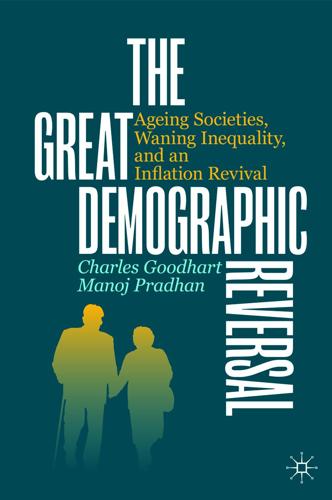
The Great Demographic Reversal: Ageing Societies, Waning Inequality, and an Inflation Revival
by
Charles Goodhart
and
Manoj Pradhan
Published 8 Aug 2020
This is why the Review proposes minimum standards of competence before staff can work unsupervised, in the form of the “Certificate of Fundamental Care” – and a code of conduct for employers (Recommendations 3, 15).” From where are we going to get the paragons prepared to do a difficult job requiring high EQ that is poorly paid and regarded as unskilled and of low prestige? The continuing and growing need for carers in this field shows up the emptiness of the job guarantee programs that have been suggested in some quarters. There are continuing vacancies for carers,10 but young uneducated males, for example, might neither want to do such work nor again be suited to it. The Cavendish Review (op. cit.) has an excellent Chapter 6 on recruitment and training, but does not tackle the question of where the supply of appropriate trainees could come from.
…
Immigrants, taking up unskilled jobs Immigration Immigration, and productivity Immigration, causes political tension Immigration, impact on public finance Immigration, opposition to Immigration, public opposition to Immigration, targeted for care workers Immigration control Impossible trinity Incentives, of managers, misaligned Income inequality Income percentile Income share, of top percentiles Income taxation, progressive Index tracking, by asset managers India India, abundant supply of labour India, administration and reform India, administrative capital, weak India, airports India, facing decline in world labour supply India, growth decline in 2018/19 India, have the ability to replicate China’s ascent India, inflection of dependency ratio distant India, massive population, an attractive market India, new bankruptcy code (IBC) India, population of India’s growth India’s growth, private sector drives Indirect taxes Indonesia Industrialization Industrial Revolution Inequality Inequality, between countries Inequality, declining Inequality, falling Inequality, global Inequality, within countries Inequality, within economies Inequality of income Inequality of wealth Inflation Inflation, a monetary phenomenon Inflation, consequence of wars Inflation, low in Japan Inflation, reviving Inflation, stronger pressures for Inflation, surge of Inflation target, political pressure to modify Inflation, targets Inflation, unexpected Inflation accelerated Inflation and age-structure of population, linked Inflationary bias, major Inflation expectations, well anchored Inflation indexed bonds Inflation targeting Inflexion Inflexion point Informal care costs Information and communication technology Infrastructure Innovation Insiders Insiders, in Japan Insiders in Japan, having primary loyalty to company Insiders, in labour force Insolvency risks Institute for Fiscal Studies Institutional shareholders, when large can gain information and influence management Intangible investment Intellectual property rights Interest, paid on commercial bank reserves at central bank Interest rates Interest rates, exceptionally low Interest rates, extraordinarily low Interest rates, falling Interest rates, falling to historical lows Interest rates, trending down Interest rate swaps ‘Internal Labour Markets’ in Japan Internal migration International Monetary Fund (IMF) Inter-war period Inventories Inventory accumulation Investment Investment cycle, US Investment, ex ante (expected) Investment, in Japan, collapsing Investment, offshored to Asia Investment, reduced by shift of production via globalization Inward investment, into Japan Ipsos MORI Iran Iraq Ireland Islamic finance Italy J Jackson Hole Jackson Hole Conference Japan Japan, affected by China’s growth Japan, blueprint for ageing societies Japan, collapse of investment growth Japan, conventional analysis flawed Japan, corporate sector, delevering Japan, distinction between output per capita and output per worker Japan, dividend exemption policy Japan, experience of Japan, impressive record of productivity Japan, labour supply decline Japan, lessons of Japan, lost decade Japan, ‘miracle’ decades Japan, no sign of inflationary pressures Japan, owes debt to households Japan, revisionist history Japan, unit labour costs Japan, wage growth Japan, wage inflation in Japan corporate sector Japanese business, offshored production to China Japanese corporates, investing abroad rather than at home Japanese evolution, conventional interpretation Japanese labour market, particular features of Japan’s domestic investment Japan Spillover Report Japan’s Productivity Surge Jetsupphasuk, M. Jiang, K. Job guarantee programs, without content Job security, prioritised in Japan Jobs, reallocated within Japan Johnson, C. Joint ventures Jubilee debt cancellation Judaic and Christian cultures Juselius, M. K Kabiri, A. Kaldor/Scitovsky welfare criterion Kalecki, M. Kalemli-Özcan, S.

Tightrope: Americans Reaching for Hope
by
Nicholas D. Kristof
and
Sheryl Wudunn
Published 14 Jan 2020
The Defense Department estimates that 71 percent of young Americans would not be eligible to join the military even if they wanted to, because of felony convictions, drug use, obesity, failure to graduate from high school and other reasons—and those ineligible include many of those who would most benefit from military service. A year or two of national service would give these young people a better chance in the job market afterward. A more dramatic step would be a federal job guarantee, but this faces difficult questions of implementation and enormous expense, with estimates in the hundreds of billions of dollars per year. It seems to make more sense to first try more modest measures, but if unemployment in some segments of the population is persistent, then a limited government jobs program of last resort would be preferable to the poverty, addiction and hopelessness that we see now.
…
Congress pulled the plug on funding for an IDA program: These individual development accounts are extensively discussed in Robert E. Friedman, A Few Thousand Dollars (New York: The New Press, 2018). wage insurance has bipartisan support: Robert J. Shiller, “How Wage Insurance Could Ease Economic Inequality,” The New York Times, March 11, 2016. federal job guarantee: L. Randall Wray, Flavia Dantas, Scott Fullwiler et al., “Public Service Employment: A Path to Full Employment,” Levy Economic Institute of Bard College, April 2018. “As an economist, I am always asked”: Joseph E. Stiglitz, Amartya Sen and Jean-Paul Fitoussi, “Report by the Commission on the Measurement of Economic Performance and Social Progress,” 2009.
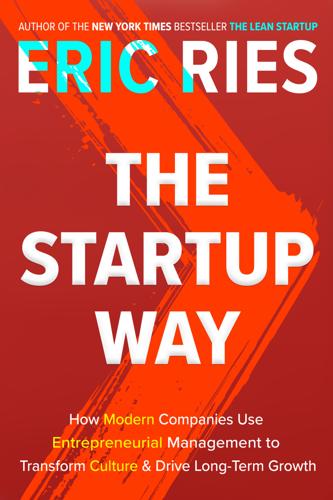
The Startup Way: Making Entrepreneurship a Fundamental Discipline of Every Enterprise
by
Eric Ries
Published 15 Mar 2017
One such example is Kunal Bahl, a graduate of the Wharton School at the University of Pennsylvania, who went home to India to found the e-commerce company Snapdeal, which is now valued at $6.5 billion and has created thousands of jobs there—but none in the United States, where he got his education. money.cnn.com/2017/02/02/news/india/snapdeal-india-kunal-bahl-h1b-visa/index.html. 17. thenation.com/article/what-if-we-treated-labor-startup. 18. thoughtco.com/intro-to-unemployment-insurance-in-the-us-1147659. 19. ncbi.nlm.nih.gov/pmc/articles/PMC2796689/. 20. UBI isn’t even necessarily the only way to build a truly universal economic benefit. A federal job guarantee might achieve similar outcomes: jacobinmag.com/2017/02/federal-job-guarantee-universal-basic-income-investment-jobs-unemployment/. 21. nytimes.com/2016/12/17/business/economy/universal-basic-income-finland.html. 22. qz.com/696377/y-combinator-is-running-a-basic-income-experiment-with-100-oakland-families. 23. kauffman.org/what-we-do/resources/entrepreneurship-policy-digest/can-social-insurance-unlock-entrepreneurial-opportunities. 24. theatlantic.com/business/archive/2016/06/netherlands-utrecht-universal-basic-income-experiment/487883/; theguardian.com/world/2016/oct/28/universal-basic-income-ontario-poverty-pilot-project-canada. 25. vox.com/new-money/2017/2/13/14580874/google-self-driving-noncompetes. 26. kauffman.org/what-we-do/resources/entrepreneurship-policy-digest/how-intellectual-property-can-help-or-hinder-innovation. 27. forbes.com/2009/08/10/government-internet-software-technology-breakthroughs-oreilly.html. 28. obamawhitehouse.archives.gov/the-press-office/2013/05/09/executive-order-making-open-and-machine-readable-new-default-government-. 29.
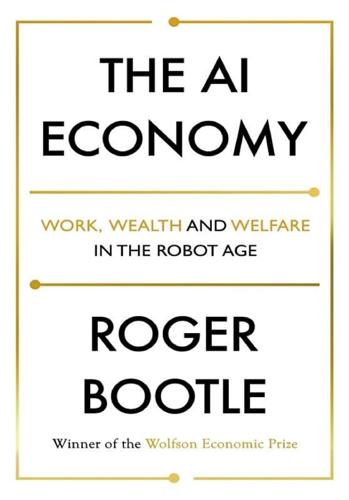
The AI Economy: Work, Wealth and Welfare in the Robot Age
by
Roger Bootle
Published 4 Sep 2019
Yet, equally, some recipients will tend to blow a lump sum in one go, leaving them without the continuing support that a regular income provides. In what follows, I will leave the lump sum idea to one side and instead analyze payment of a regular income. Basic jobs But before we get to the main issue, there are two other variants to consider, namely the idea of a basic jobs guarantee (BJG), and the provision of “universal basic services” (UBS). In the USA Senators Bernie Sanders, Elizabeth Warren, Cory Booker, and Kirsten Gillibrand have pressed for a BJG to be trialed. This idea aims to head off one of the criticisms of UBI but immediately undermines one of its key appeals.
…
It therefore lacks the appeal that UBI has of allowing some people, including would-be poets, writers, painters, and composers, to have a livable income without having to do paid work. So far, at least, the idea of a BJG has failed to enthuse key figures generally thought to be on the Left, who might be thought to be sympathetic to it, on the grounds of both cost and doubts as to what people receiving the jobs guarantee would actually do. Lawrence Summers, a former US Secretary of the Treasury, has posited the case where a $15-per-hour guaranteed job encouraged an extra 4 million people into the workforce and attracted 10 million existing employees (for a quarter of whom $15 an hour would represent a wage increase.)
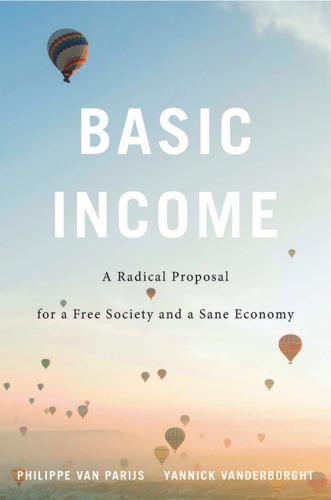
Basic Income: A Radical Proposal for a Free Society and a Sane Economy
by
Philippe van Parijs
and
Yannick Vanderborght
Published 20 Mar 2017
June 19, Earth Institute, Columbia University. http://Â�w ww╉.Â�columbia╉.Â�edu╉/Â�~jeh1╉/Â�mailings╉/Â�2014╉/Â�20140619╉_Â�TooLittle╉.Â�pdf. Harrington, Joel F. 1999. “Escape from the Â�Great Confinement: The Genealogy of a German WorkÂ�house.” Journal of Modern History 71(2): 308–345. Harvey, Philip L. 2006. “Funding a Job Guarantee.” International Journal of Environment, Workplace and Employment 2(1): 114–132. —Â�—Â�—. 2011. Back to Work: A Public Jobs Proposal for Economic Recovery. New York: Demos. —Â�—Â�—. 2012. “More for Less: The Job Guarantee Strategy.” Basic Income Studies 7(2): 3–18. —Â�—Â�—. 2014. “Securing the Right to Work and Income Security.” In Elise Dermine and Daniel Dumont, eds., Activation Policies for the Unemployed, the Right to Work and the Duty to Work, 223–254.
…
If busy-�ness is all that �matters, wage subsidies are definitely superior to an unconditional basic income. For �those committed to freedom for all, however, the opposite is clearly the case. 45 BASIC INCOME Basic Income Versus Guaranteed Employment Another mea�sure sometimes proposed as an alternative to an unconditional basic income is a �legal entitlement to a job: guaranteed employment rather than guaranteed income, a right to work with an income rather than a right to an income without work. Many of the early public-assistance schemes from the sixteenth �century onwards can be construed as mea�sures of this type, in that assistance was restricted, among the able-�bodied, to the inmates of work�houses or at least to �those agreeing to perform a job assigned to them by municipal authorities.

The New Class War: Saving Democracy From the Metropolitan Elite
by
Michael Lind
Published 20 Feb 2020
On the contrary, labor liberals and social democrats have usually opposed proposals for posttax transfers of cash to individuals, in favor of measures that increase the ability of workers to bargain for higher pretax wages, like limits on immigration and offshoring, collective bargaining at the firm or sectoral level, and public job guarantees and socialized in-kind benefits like universal health care (“decommodification”). Conversely, cash transfers and ideas of universal capitalism have a long and distinguished pedigree on the free market right. From Milton Friedman in the 1960s to Charles Murray in the 1990s, libertarians have proposed using some form of a basic income as a substitute, not a supplement, for most or all other social insurance and antipoverty programs.13 Like the panaceas of education and redistribution, antimonopolism does not question the premises of economic neoliberalism.
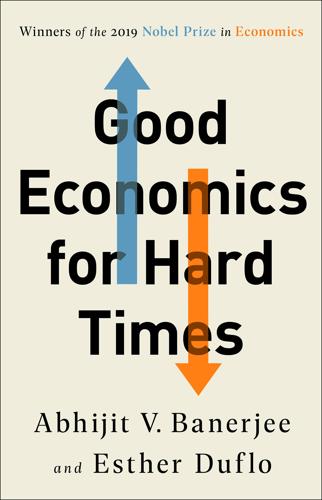
Good Economics for Hard Times: Better Answers to Our Biggest Problems
by
Abhijit V. Banerjee
and
Esther Duflo
Published 12 Nov 2019
It is almost impossible for the government to know how much they earn, making it very hard to isolate the poor and target them with the extra income.40 The alternative to targeting is self-targeting. India’s National Rural Employment Guarantee Act (NREGA) is the largest of these self-targeted programs (and perhaps some sort of model for the federal job guarantee proposed in the United States). Every rural family is entitled to a hundred days of work per year at the official minimum wage, which is higher in most places than the actual wage. There is no official screening, but there is the requirement to work, usually on construction sites, which screens out anybody with something better to do than stand in the sun for eight hours a day.
…
In 2019, presidential candidates Cory Booker, Kamala Harris, Bernie Sanders, and Elizabeth Warren have all proposed some kind of federal guarantee, whereby any American who wanted to work would be entitled to a good job ($15 an hour with retirement and health benefits on par with other federal employees, childcare assistance, and twelve weeks of paid family leave) in community service, home care, park maintenance, etc. The Green New Deal proposed by Democratic members of Congress includes a federal job guarantee. The idea is of course not new; the Indian National Rural Employment Guarantee Act works along the same lines, as did the original New Deal. Such a program is not easy to run well if the experience in India is any guide. Creating and organizing enough jobs would probably be even harder in the United States, given that very few people want to dig ditches or build roads, which is what they are asked to do in India.
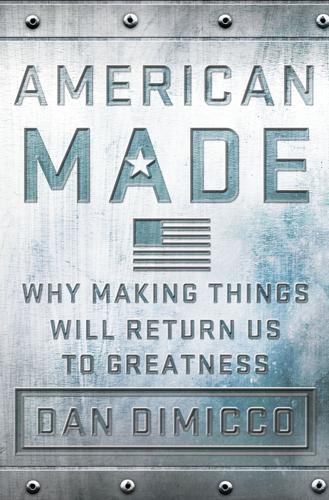
American Made: Why Making Things Will Return Us to Greatness
by
Dan Dimicco
Published 3 Mar 2015
They may argue about the degree. But we’re stuck fighting over rules and regulations that make recovery and job creation needlessly difficult. The EPA’s recent power plant regulations, specifically the Utility Maximum Achievable Control Technology (MACT) and Cross-State Air Pollution rules, will kill jobs. Guaranteed. The American Coalition for Clean Coal Electricity estimated losses of 1.4 million job-years30 through 2020.31 Further, the EPA’s proposed carbon dioxide emissions rules on new and existing power plants could cost upward of 224,000 jobs annually through 2030, according to the Institute for 21st Century Energy.32 Now, am I saying let’s go backward?
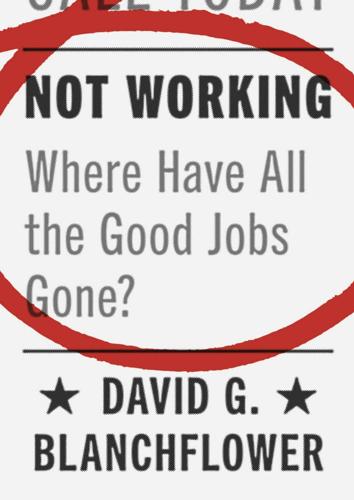
Not Working: Where Have All the Good Jobs Gone?
by
David G. Blanchflower
Published 12 Apr 2021
There has also been talk of Universal Basic Income (UBI) whereby the federal government would provide each adult below a certain income level with a specific amount of money each year. It acts as a negative income tax. In a new Gallup poll taken in February 2018 an astonishing 48 percent of Americans support this idea. Alexandria Ocasio-Cortez won a surprise primary election in New York and called for a universal jobs guarantee, under which the federal government would provide a job for every American. This has support from Bernie Sanders. Senator Cory Booker (D-NJ) has introduced legislation that would see a three-year pilot project set up to guarantee jobs in fifteen regions of high unemployment. Among the bill’s co-sponsors is Senator Kirsten Gillibrand (D-NY), who tweeted in support of the policy in April.
…
Office for National Statistics, “Migration Statistics Quarterly Report: November 2017,” https://www.ons.gov.uk/peoplepopulationandcommunity/population andmigration/internationalmigration/bulletins/migrationstatisticsquarterly report/november2017#statisticians-comment. 52. Emma Taggert, “Vermont Will Pay People Who Work from Home up to $10,000 to Move There,” Mymodernmet.com, June 1, 2018. 53. Laura Paddison, “What Is a Federal Jobs Guarantee?” Huffington Post, July 6, 2018. 54. Antti Jauhiainen and Joona-Hermanni Mäkinen, “Universal Basic Income Didn’t Fail in Finland, Finland Failed It,” New York Times, May 2, 2018. 55. https://yougov.co.uk/opi/surveys/results?utm_source=Twitter&utm_medium=daily_questions&utm_campaign=question_1#/survey/ea30cfa2-6a2d-11e8-b423-d74e00ea34be/question/75c67445-6a2e-11e8-9d33-9d5c8eb86689/politics. 56.
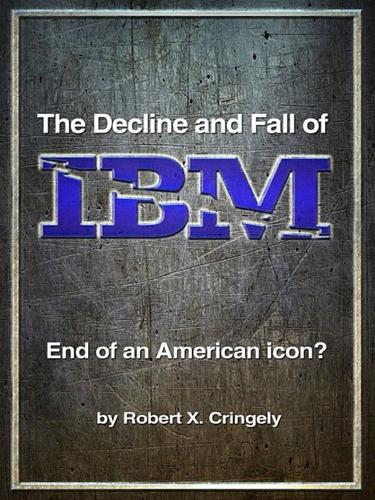
The Decline and Fall of IBM: End of an American Icon?
by
Robert X. Cringely
Published 1 Jun 2014
The game is this: - Send a letter/email to an employee who works in a remote location (typically a home office) telling them that in a few weeks their office is now in Dubuque (or Denver or wherever), perhaps with a token amount of money to help with relocation costs; + Employee tries to discuss with their manager that the move to Dubuque is a hardship and they cannot make the move; + The manager informs the employee that if they do not make the move then it is the equivalent of them quitting their job, hence no severance; + Employee has to make a choice – move (mostly at their expense) with no long-term job guarantee or quit (with no severance). If only IBM could harness the energy of the Watson’s spinning in their graves over what a bad place their company has become… Ghost of IBM Past / April 18, 2012 / 4:56 pm Execs don’t think IBM needs rescuing You may care about IBM, I certainly do (I work there).
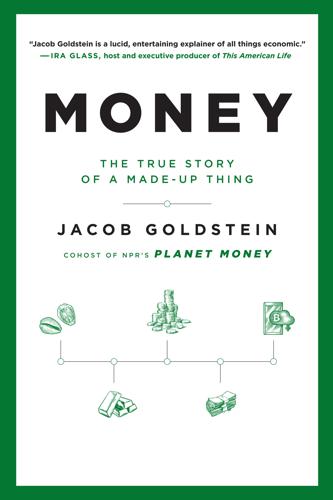
Money: The True Story of a Made-Up Thing
by
Jacob Goldstein
Published 14 Aug 2020
If inflation starts to rise, the government can cool things off by raising taxes to take money out of the system. In 2015, Stephanie Kelton’s work caught the eye of Bernie Sanders’s presidential campaign. Sanders didn’t seem that interested in the details of MMT. But he liked the idea of the government being able to spend lots of money on things like a jobs guarantee. Kelton became Sanders’s economic advisor and started telling reporters about MMT. The theory got another boost when Democrats won a majority in the House of Representatives two years later, and a newly elected congresswoman drew on MMT to suggest that maybe the government could start doing lots more stuff without worrying about how to pay for it.
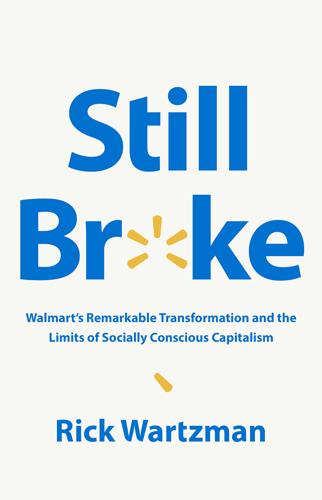
Still Broke: Walmart's Remarkable Transformation and the Limits of Socially Conscious Capitalism
by
Rick Wartzman
Published 15 Nov 2022
Simon was passionate, in particular, about painting Walmart as a place always ready to give people in need an entry-level job—a chance to get their foot on the first rung of a career ladder. It was in this spirit that Simon, who had served for 25 years in the US Navy and Navy Reserve, retiring as a lieutenant commander, established Walmart’s job guarantee for military veterans. “Not every returning veteran wants to work in retail,” he said. “But every veteran who does will have a place to go.” And yet Simon’s portrayal of the opportunities Walmart provided once you started working there was not always consistent. At a 2013 retailing conference, he played up the statistic that the company promoted 160,000 people each year.

The Crash Detectives: Investigating the World's Most Mysterious Air Disasters
by
Christine Negroni
Published 26 Sep 2016
Lufthansa might as well be looking for astronauts; that’s how hard it is to get selected. And with good reason: at the time, it cost thirty-five million dollars a year to run the school that turns cadets into airline pilots. “Students are selected by the airline, trained and sponsored by the airline,” Kippenberg said. “They have a job guarantee,” he said. “All they have to do now is learn to fly.” Kippenberg graduated from ATCA in 1977 and has been running the program since 2002. He may not have appreciated how hard his students work to get accepted until his own daughter Lisanne applied at the age of nineteen to take an Introduction to Aviation course offered by the Swiss government.
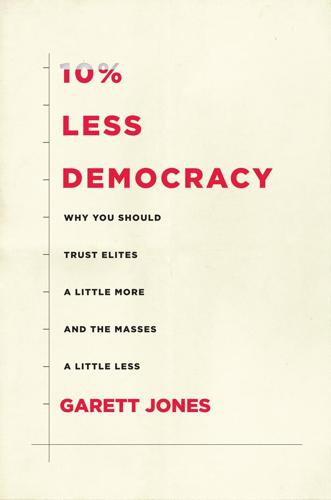
10% Less Democracy: Why You Should Trust Elites a Little More and the Masses a Little Less
by
Garett Jones
Published 4 Feb 2020
Bolivarian Republic of Venezuela, 1999 (amended to 2009), art. 83], “[h]ealth is a fundamental social right” and the responsibility of the State, which shall guarantee it as part of the right to life.¹⁴ Even before the horrifying collapse of the Venezuelan health care system in the mid-2010s, the system had done a poor job guaranteeing this “part of the right to life.” For instance, the maternal mortality rate in Venezuela has hovered a little above 90 maternal deaths per 100,000 live births, while the European Union nations have a rate of about 8 per 100,000. The guaranteed right to health, at least for mothers giving birth, is worth much less in Venezuela than it is in the EU.

The Last President of Europe: Emmanuel Macron's Race to Revive France and Save the World
by
William Drozdiak
Published 27 Apr 2020
Young people and minorities continue to suffer as primary victims of a “blocked society” that the sociologist Michel Crozier identified four decades ago as the root cause of France’s social crisis. They are consistently excluded in favor of those who are coddled and protected within the system by lifetime job guarantees. Raising taxes in the most heavily taxed nation in Europe will not work, Macron believes. What is needed is a revolution in the way French society is structured. “Let’s not kid ourselves, we are seeing increasing inequality,” Macron said in his 2018 State of the Nation Address to Parliament. “But what we have is really inequality of destiny, according to where you were born, how you were raised.
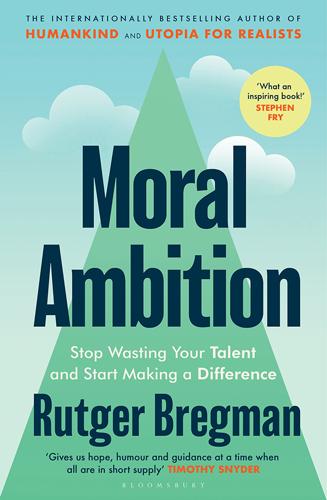
Moral Ambition: Stop Wasting Your Talent and Start Making a Difference
by
Bregman, Rutger
Published 9 Mar 2025
‘Progressives are eternally convinced,’ Hirschman wrote, ‘that “all good things go together.” ’38 Take the climate crisis. Many an activist believes we’ll only beat it when we solve a bunch of other problems, too.39 We shouldn’t only fight against fossil fuels, but also for affordable healthcare, free schooling, universal childcare, a basic income, a jobs guarantee, a four-day workweek, reparations for centuries of colonialism – and shoot, while we’re at it, how about we do away with capitalism entirely. And oh yeah, we really should do all that in a radically reformed democracy, with citizen councils selected by lot to be fair, and could we get it done within ten years, please?
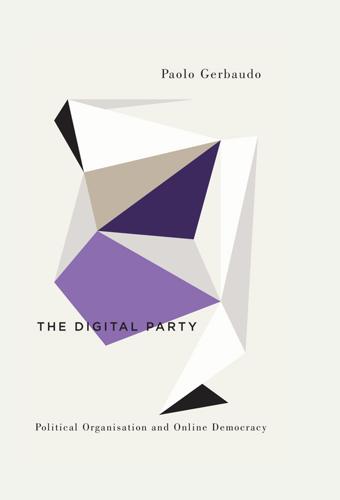
The Digital Party: Political Organisation and Online Democracy
by
Paolo Gerbaudo
Published 19 Jul 2018
They propose that the state model of universal healthcare should expand to other domains of life such as transport or communication services. This measure is aimed at protecting citizens, especially those at the lower end of society, and shielding them from the effects of automation and their impact on employment and stagnating wages, as well as providing all citizens with a job guarantee through extended state employment. What is interesting across these policies, regardless of their specific orientation, is the way they illustrate digital parties’ efforts to devise a new model of social insurance in a society marked by extreme diversification and occupational instability. All digital parties express a suspicion towards Big Capitalism, banks, large multinational corporations and the like, which they perceive as being bent on profiting from their dominant position.
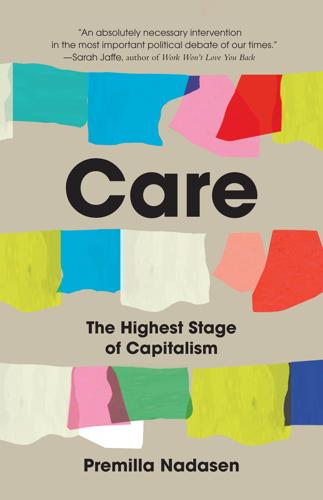
Care: The Highest Stage of Capitalism
by
Premilla Nadasen
Published 10 Oct 2023
The Care for All Agenda, a comprehensive care infrastructure plan introduced by two progressive Democrats, Elizabeth Warren and Jamaal Bowman, resolves “far-reaching public investments” in hospitals, schools, housing, transportation, public parks, and libraries. It aims to increase pay and benefits for care workers, protect the right to organize, ensure paid time off, and implement a federal jobs guarantee and universal public programs for health care and childcare. It is by far the most promising of legislative proposals and is premised on the idea that “we are interdependent…and everyone will give or receive care.” Yet, it makes no mention of guaranteed income support or people caring for their own children.
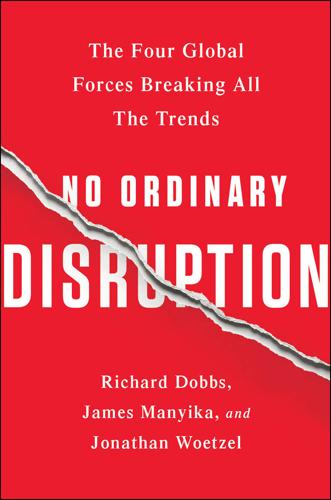
No Ordinary Disruption: The Four Global Forces Breaking All the Trends
by
Richard Dobbs
and
James Manyika
Published 12 May 2015
In return, the retiring employees gain a stream of income, social interaction, and the opportunity to continue plying their trade on a part-time basis.50 Such policies are becoming increasingly important in designing career paths that fit senior skills and constraints. In France, Axa launched its Cap Métiers program, aiming to promote internal job mobility for its staff and particularly targeting older workers. Axa offered non-front-line staffers a job guarantee and vocational training if they decide to change their roles; 30 percent of its staff, including a large proportion of senior workers, switched jobs during the initial years of the program. The electronic systems group Thales, determined to raise the number of employees over fifty-five by 5 percent annually, implemented an integrated policy to anticipate career evolution—for example, through a systematic career review for those aged over forty-five—developing vocational training and mentorship and managing the transition between work and retirement.51 Another crucial initiative is to offer specific training to help retain older workers, redefine their roles, and keep their skills updated.

American Marxism
by
Mark R. Levin
Published 12 Jul 2021
Consider that there are 136 million dwellings in the United States. An upgrade of each would conservatively cost $10,000 a unit on average or near $1.4 trillion, and this does not even include the industrial and commercial structures. Nor does it include upkeep.”68 In addition, “the Green New Deal also aspires to provide jobs guarantees at a ‘living wage.’ A government assessment of a similar proposal by Sen. Cory Booker (D-NJ) puts the cost of such a program at $543 billion in its first year. Though the costs thereafter would fall, the cumulative expense over ten years would come to some $2.5 trillion. The goal of developing a universal, single payer health-care system would, according to an MIT-Amherst study of a similar plan put forward by Senator Bernie Sanders, come to about $1.4 trillion a year.”69 “Just these six of AOC’s long list of aspirations,” states Ezrati, “would then roughly cost some $2.5 trillion a year.

How to Own the World: A Plain English Guide to Thinking Globally and Investing Wisely
by
Andrew Craig
Published 6 Sep 2015
Each time the threshold is reduced, the government is effectively taking money from people who have the self-discipline to save and invest wisely. I would stress that I have no political axe to grind here: in the same month that George Osborne reduced the allowance again, Ed Miliband announced his intention to use pension assets to fund a reduction in student fees and underwrite his “compulsory jobs guarantee” policy. Tom McPhail, who heads up pensions research at leading UK financial services company Hargreaves Lansdown, reacted to this news by saying: “We need our politicians to take a long-term view rather than raid the pensions piggy bank to pay for other policies.” This is why it may be a better plan for you to focus on building your wealth in an ISA than in a pension.
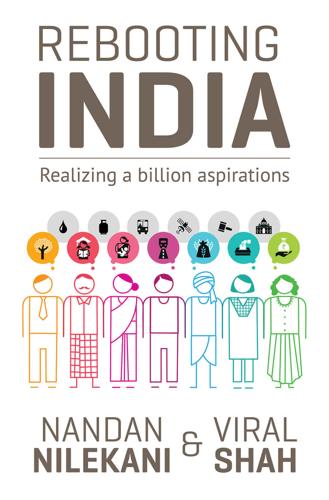
Rebooting India: Realizing a Billion Aspirations
by
Nandan Nilekani
Published 4 Feb 2016
Firstly, Aadhaar is the only universal identity available to all Indian residents, even those who do not possess any other form of identification, making them visible to the state for the first time. Secondly, Aadhaar is that rare government scheme that was not designed to address a single need. Instead, it is an open identity verification system that can be plugged into any application that requires an individual to prove who they are, whether they’re enrolling for a rural job guarantee scheme or opening a bank account. No other identity scheme has used biometric identity verification—using a person’s fingerprints and iris to validate their identity—on such a large scale. And finally, Sonawane was not required to present her official card every time she wanted to use her Aadhaar number—as long as she knew what her number was, her eyes and fingers were sufficient to declare to the world that she, and she alone, was Ranjana Sonawane of Tembhli.1 Ranjana Sonawane was the first of over 900 million Indian residents—over two-thirds of the 1.2 billion-strong population—who now have Aadhaar numbers.2 For those of us in the audience that day in Tembhli—or on the stage, in Nandan’s case—she was a symbol of the remarkable journey we had undertaken in the past fourteen months as part of the Unique Identification Authority of India, the organization set up to implement the Aadhaar scheme.
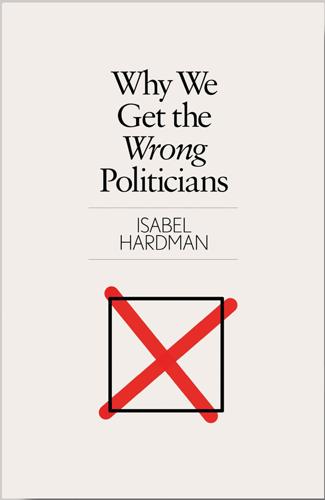
Why We Get the Wrong Politicians
by
Isabel Hardman
Published 14 Jun 2018
These MPs do not get on, and that serves them right for being unimaginative about how to make the most of their precious time in Parliament. But others do. The bottom of the greasy pole For most ambitious MPs, the first step towards ministerial stardom is being appointed a parliamentary private secretary. Although this position is unpaid, it still puts you in the government. The job guarantees your loyalty in every vote, but it is largely about loyalty to an individual minister: PPSs are nicknamed ‘bag carriers’ in Westminster. The benefit of the job for a new MP is that it teaches them what a minister does and, depending on whether their boss is any good or not, how to do the job well.
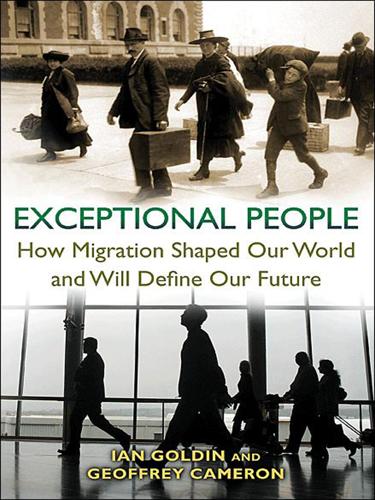
Exceptional People: How Migration Shaped Our World and Will Define Our Future
by
Ian Goldin
,
Geoffrey Cameron
and
Meera Balarajan
Published 20 Dec 2010
As Hein de Haas et al. note, it is not clear that many of those migrating would have been as productive at home: In the Maghreb, Egypt, Jordan and Yemen there is high unemployment among university graduates. Mass unemployment and frustration among a new generation of relatively well-educated youngsters has become a general social problem…. Decades of government job guarantees for graduates have induced students to seek any degree, regardless of its utility in production, since a degree, by itself, has long been a guarantee of a government job. Governments can no longer provide the necessary jobs, while statist policies impede private sector job creation.92 Most brain drain originates in developing countries with high rates of unemployment, and the evidence suggests that many graduates leave because they would otherwise be unproductive at home.
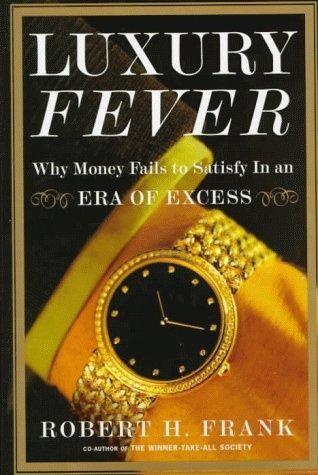
Luxury Fever: Why Money Fails to Satisfy in an Era of Excess
by
Robert H. Frank
Published 15 Jan 1999
Because the monetary supplement is independent of employment status, that same family with an earner in a private job paying $10,000 would have a spendable income of $18,000. This income difference would provide an incentive for public-job holders to move into private jobs as quickly as they could, thereby holding down the expense of extending the job guarantee. Although this simple jobs-plus-supplement approach would be costly, it is well within our means. Completely apart from our moral responsibility to provide the best possible opportunities to our neediest families, a well-implemented public-service employment program would deliver high value for our dollars.
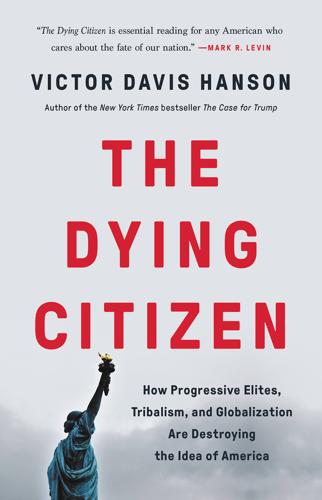
The Dying Citizen: How Progressive Elites, Tribalism, and Globalization Are Destroying the Idea of America
by
Victor Davis Hanson
Published 15 Nov 2021
When one’s career is often predicated on various contractual tenures, civil service protections, and seniority, then a billet seems safe, if not guaranteed. An entitled worldview follows that events can and should be commensurately predictable, logical, controllable, and ultimately perfectible. Getting along rather than getting it right becomes institutionalized. The bureaucrat assumes that his own job guarantees and protected competence reflect his critical importance to the nation, in a way not necessarily true of those who grow, truck, or deliver our food and have no such sinecures. The Internal Revenue Service (IRS) offers a fairly recent example of a Frankensteinian bureaucracy at war with the citizen.
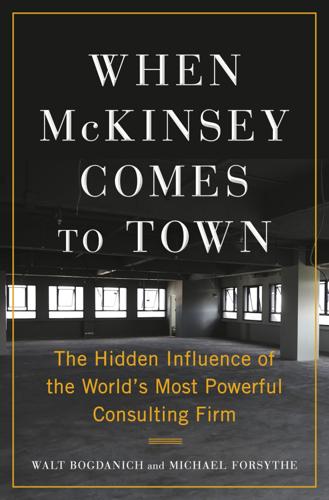
When McKinsey Comes to Town: The Hidden Influence of the World's Most Powerful Consulting Firm
by
Walt Bogdanich
and
Michael Forsythe
Published 3 Oct 2022
Rosiello would later become the chief financial officer at Valeant, the former McKinsey client accused of price gouging on lifesaving drugs. At least twenty-four other partners consulted for Purdue. To have seven partners on the same contract, in addition to a support staff, signaled this wasn’t a rogue unit flying under the radar of the firm’s risk managers. The size and duration of the job guaranteed the firm steady revenue, not something the higher-ups would be inclined to disrupt. McKinsey began consulting for Purdue when J. Michael Pearson led the firm’s pharmaceutical practice. An intense, sometimes profane senior partner, Pearson did not fit the stereotype of lean and disciplined McKinsey consultants.

Make Your Own Job: How the Entrepreneurial Work Ethic Exhausted America
by
Erik Baker
Published 13 Jan 2025
There was, of course, legitimate cause for concern about the problem of long-term unemployment in urban Black communities, as radical Black intellectuals had long argued. As the historian David P. Stein has shown, Coretta Scott King devoted much of her activism in the decades following her husband’s death to the fight for a federal jobs guarantee, which she identified as the most promising legislative solution to the transformation of the urban Black working class into a surplus population at the hands of deindustrialization.42 In the 1978 book in which he re-popularized the term, William Julius Wilson argued that “structural changes in the economy” had produced an “underclass” of people who were not just subordinated to wage labor but limited to particularly “low-paying, unstable jobs” when they could find work at all.
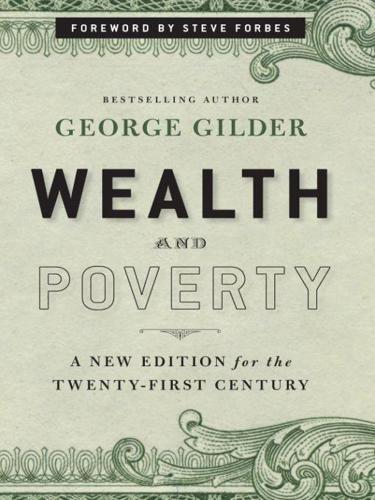
Wealth and Poverty: A New Edition for the Twenty-First Century
by
George Gilder
Published 30 Apr 1981
In San Diego thousands worked in the city’s electrical-component assembly shops, which operated under contract to larger manufacturers of ordnance and communications equipment.21 They received low pay, but it was far higher than that of their competitors in Taiwan, Hong Kong, and Singapore. A job guarantee gives what cannot be given. It implies that everyone could diminish effort and slackly accept pay without causing the entire system to decay. If, under guarantees such as those that pertain to civil service, all workers merely performed at the minimal level, the U.S. standard of living would collapse.

Them And Us: Politics, Greed And Inequality - Why We Need A Fair Society
by
Will Hutton
Published 30 Sep 2010
Instead of being permitted to draw down a measly £6000 without losing benefits, people should be able to draw £15,000 a year and still retain their benefits, which would remove a huge disincentive to save. Finally, the state should proactively manage the labour market to ensure that, as far as possible, there is work. It should be an employer of last resort, at least extending the six-month job guarantee for 18–24-year-olds to all workers; at best, like Franklin D. Roosevelt’s Work Programs Adminstration (WPA) in the 1930s, engaging the unemployed in economically and socially useful tasks in return for increased benefits. Harry Hopkins, Roosevelt’s chain-smoking, high-energy confidant who ran the WPA, passionately believed in the value of work and the destructive consequences of living on benefit.
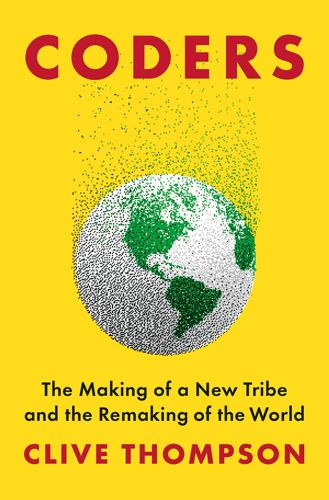
Coders: The Making of a New Tribe and the Remaking of the World
by
Clive Thompson
Published 26 Mar 2019
“What he also found is that it reinforces social bias around class, when it comes down to it,” says Jake Hsu, Catalyte’s CEO: Well-off white kids had better-groomed CVs and educational specs, which meant they were getting more tech jobs regardless of whether they’d actually make good coders. So Catalyte instead focused on advertising its aptitude test broadly in areas that traditionally didn’t produce coders and automatically offering a training opportunity, with a job guaranteed upon completion, to anyone who scored highly on it—without even asking for a résumé or doing a formal interview. Their first test city was Baltimore. Aptitude testing is, of course, a great echo of the coder past. In the early days of software—back in the ’50s and ’60s—firms had no way of knowing who would make a good programmer, so they relied heavily on puzzles and pattern-recognition tests to figure out who could think logically.

Blood in the Machine: The Origins of the Rebellion Against Big Tech
by
Brian Merchant
Published 25 Sep 2023
Chant no more your old rhymes about bold Robin Hood, His feats I but little admire I will sing the Achievements of General Ludd Now the Hero of Nottinghamshire Brave Ludd was to measures of violence unused Till his sufferings became so severe That at last to defend his own Interest he rous’d And for the great work did prepare The guilty may fear, but no vengeance he aims At the honest man’s life or Estate His wrath is entirely confined to wide frames And to those that old prices abate These Engines of mischief were sentenced to die By unanimous vote of the Trade And Ludd who can all opposition defy Was the grand Executioner made. It’s a raucous, spirited folk song, a battle hymn, even, that culminates in a call for a job guarantee and wage controls, and a day when machinery won’t threaten anyone’s livelihood. It’s a call not for the destruction of all machines, but for a world where machines are not used by the “haughty” to oppress the “humble.” Not all writers who shared such a vision would remain anonymous. The man who was about to become the most recognized poet in the world was about to take up the Luddite cause, too.

The Climate Book: The Facts and the Solutions
by
Greta Thunberg
Published 14 Feb 2023
If our current leaders believe we face a climate emergency, then they need to act and speak like it’s a damn emergency. One last wartime lesson: Every great mobilization comes with a pledge to leave no one behind – that life after the fight will be brighter and more just. The climate mobilization must include a jobs guarantee for everyone who wants one, and a just transition for all whose livelihoods are tied to fossil fuels or who live on the front lines of the climate crisis, as part of an overarching commitment to tackle inequality. / 5.14 Lessons from the Pandemic David Wallace-Wells In early December 2019, just weeks after 2 million climate strikers gathered around the world to protest the business-as-usual beginning of the COP25 conference in Madrid, the first human case of SARS-CoV-2 was registered in Wuhan.

What If We Get It Right?: Visions of Climate Futures
by
Ayana Elizabeth Johnson
Published 17 Sep 2024
Then, in February of 2019, the Green New Deal (GND) appeared on the scene. It had been crafted by a new cadre of climate policy researchers and advocates, still in their twenties. When I read it, my first reaction was: Holy shit, they really went for it. Manufacturing and agriculture, healthcare and job guarantees, rural and urban, poverty and race, clean air and clear water, all of it. While I knew it was all intertwined, even I barely felt ready for this. Could America be ready for this? Become ready? There was a massive amount of press coverage, because it was introduced into the House by Representative Alexandria Ocasio-Cortez—then a brand-new and extremely high-profile member of Congress—along with Senator Ed Markey.[*142] The resolution, “Recognizing the duty of the Federal Government to create a Green New Deal,” quickly gathered 14 senators and 101 representatives as co-sponsors.[*143] Initially, the resolution was quite well received by the public.
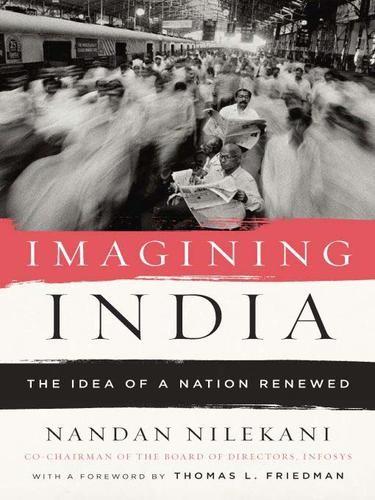
Imagining India
by
Nandan Nilekani
Published 25 Nov 2008
But the compulsions that slowed down India’s reforms have also warped our debates and allowed proponents of both provably good and bad policy to argue as if on a level playing field. Quite disconcertingly, we have seen politicians hang onto ideas that have dismal records in reducing poverty and in creating employment—such as free electricity and job-guarantee schemes—and these are still pitched as more “propoor” than reformist approaches. The sharp partisanship around these issues also drags down the debate to name-calling. For instance, during my time with the National Knowledge Commission, we took a stand on the debates over increasing reservations for backward castes in India’s central education institutions.

Elon Musk
by
Walter Isaacson
Published 11 Sep 2023
But Mike Griffin did not want to move to Los Angeles. He was working for In-Q-Tel, a CIA-funded venture firm based in the Washington, DC, area, and he was looking at a promising future in science policy. Indeed, President George W. Bush appointed him to be NASA administrator in 2005. Jim Cantrell considered joining, but he asked for a lot of job guarantees that Musk was unwilling to meet. So Musk ended up being, by default, the company’s chief engineer. Musk incorporated Space Exploration Technologies in May 2002. At first he called the company by its initials, SET. A few months later, he highlighted his favorite letter by moving to a more memorable moniker, SpaceX.
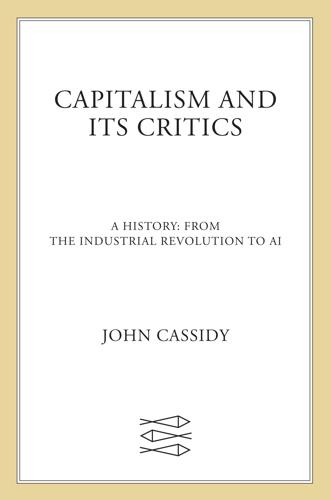
Capitalism and Its Critics: A History: From the Industrial Revolution to AI
by
John Cassidy
Published 12 May 2025
The Universal Workers’ Union would redress this imbalance by organizing the working class and demanding a “RIGHT TO WORK,” Tristan said. The only property that the workers possessed was their arms, and “the free use and guarantee of that property must be recognized in principle (and also in reality).”51 This proposal for job guarantees wasn’t entirely novel. Other socialist writers had recognized the precariousness of employment as a central problem in an economy based on the profit motive. In 1840, the writer and future politician Louis Blanc had published a pamphlet, The Organization of Labor, in which he called on the French government to supplant the competitive private-enterprise economy, which he regarded as ruinous, with a nationwide system of workshops, “Ateliers Sociaux,” where workers would be guaranteed jobs and get to choose their own bosses.

Reaganland: America's Right Turn 1976-1980
by
Rick Perlstein
Published 17 Aug 2020
But presently, with unemployment down to 6.4 percent, even that looked like a solution in search of the problem—or, rather, the wrong problem: the public was now far more worried about inflation, which had risen to 6.8 percent. Relations with the Congressional Black Caucus (they still cared about jobs; the black unemployment rate was 20 percent) grew frosty because Carter refused to advocate restoring the jobs guarantee in the further-weakened bill the House was considering—with speculation Carter might veto even that, his fulsome eulogy for its namesake notwithstanding. Richard Nixon made his first visit to Washington since his resignation for Humphrey’s memorial. At a reception in Howard Baker’s office, an observer noted that no one noticed him off in a corner.